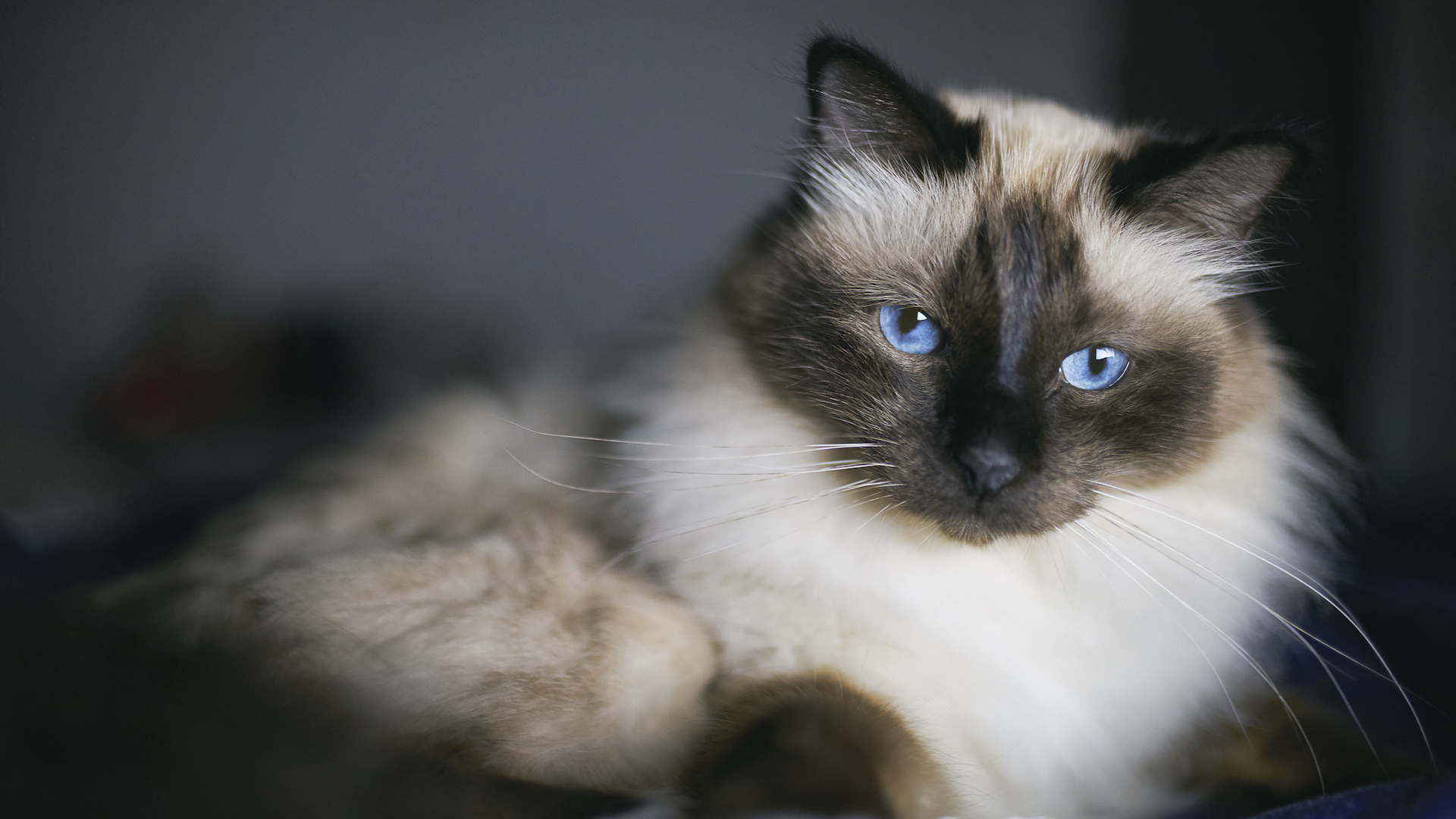
The beautiful birman cat is distinguished by its captivating sapphire blue eyes and white-gloved paws. Its delightful pointed coloring adds to the allure of this sweet and affectionate cat, whose origins are shrouded in myth and legend.
Nowadays, having survived post-war extinction, the Birman is firmly established as a favorite pedigree cat breed. Its stunning looks, silky coat, and friendly personality make it a super family companion. You will want to be stocked with the best cat toys though, as this breed loves to play!
With close links genetically to the Siamese and ragdoll, and by name to the Burmese, the birman is a breed all of its own, with unique traits. Let’s find out some interesting facts about them.
32 interesting facts about birman cats
1. Holy status
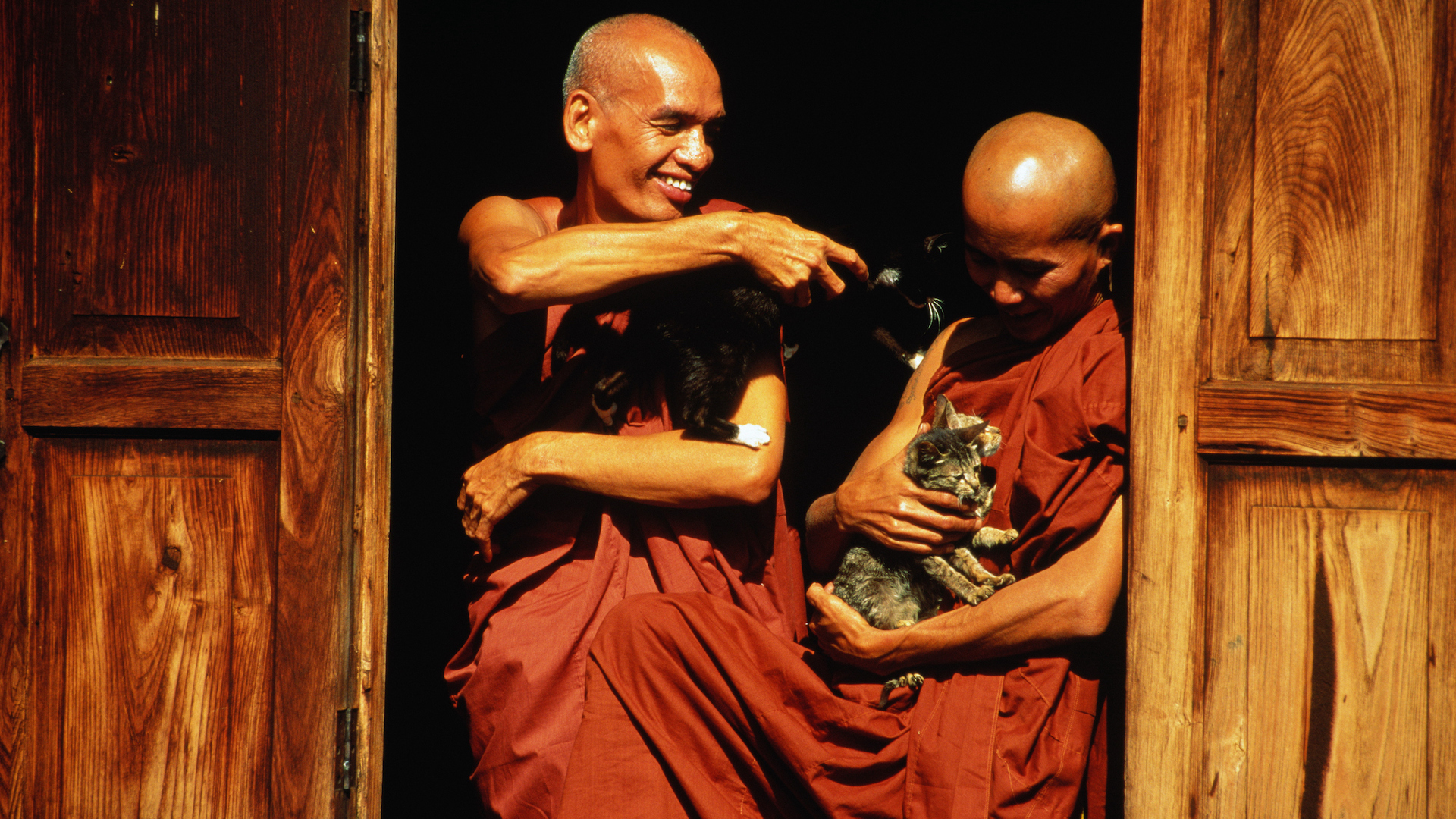
The birman cat is also known as the Sacred Cat of Burma, thanks to its origins as a temple cat in the southeast Asian country now known as Myanmar. The temple cats were believed to hold the souls of the departed priests before their reincarnation.
2. They always wear gloves
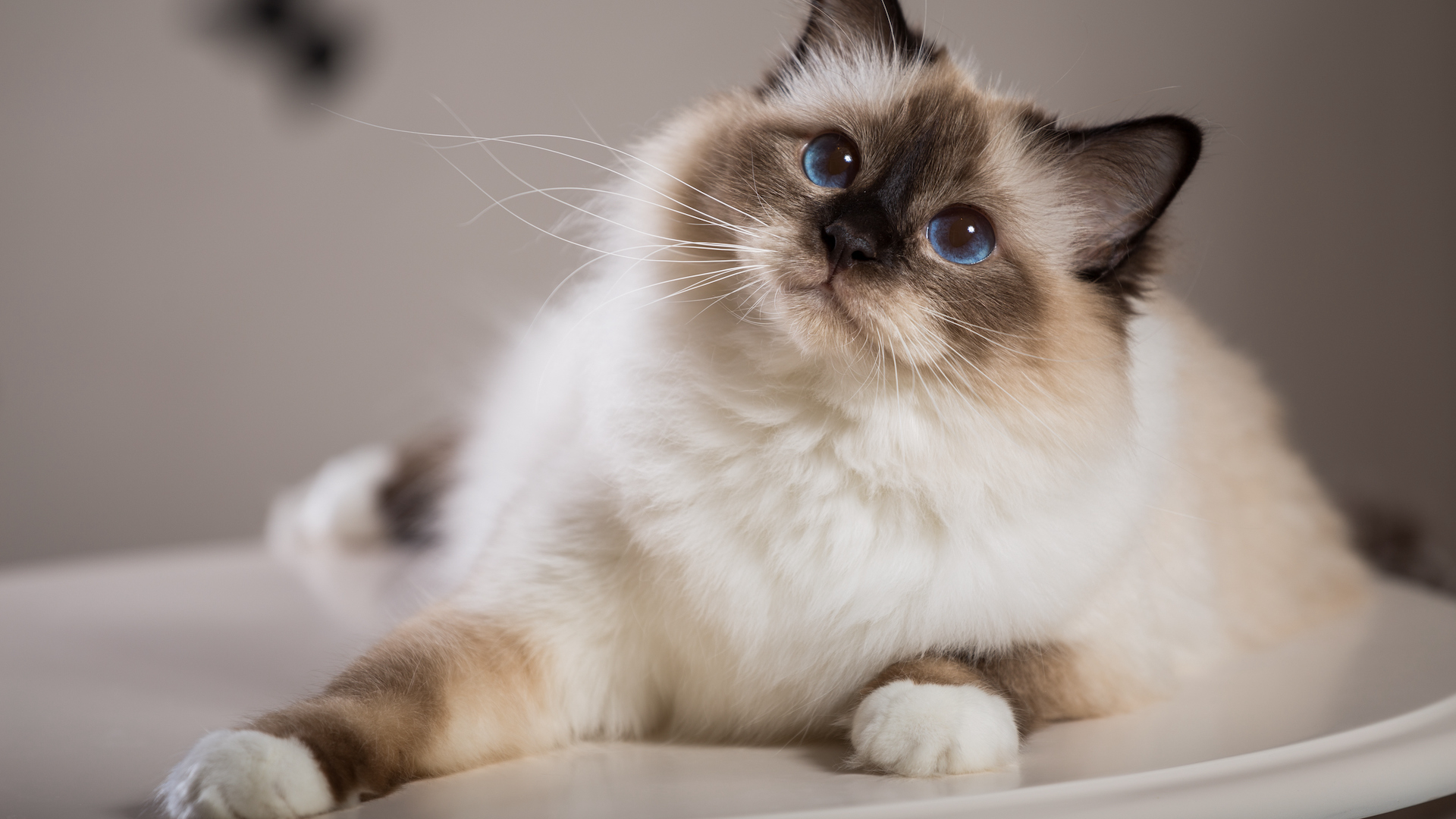
Four mandatory white feet mean these kitties look like they always wear white gloves, giving them an air of nobility and purity. A lack of white on any paw is considered a disqualification from the breed standard.
3. Blue-eyed beauties
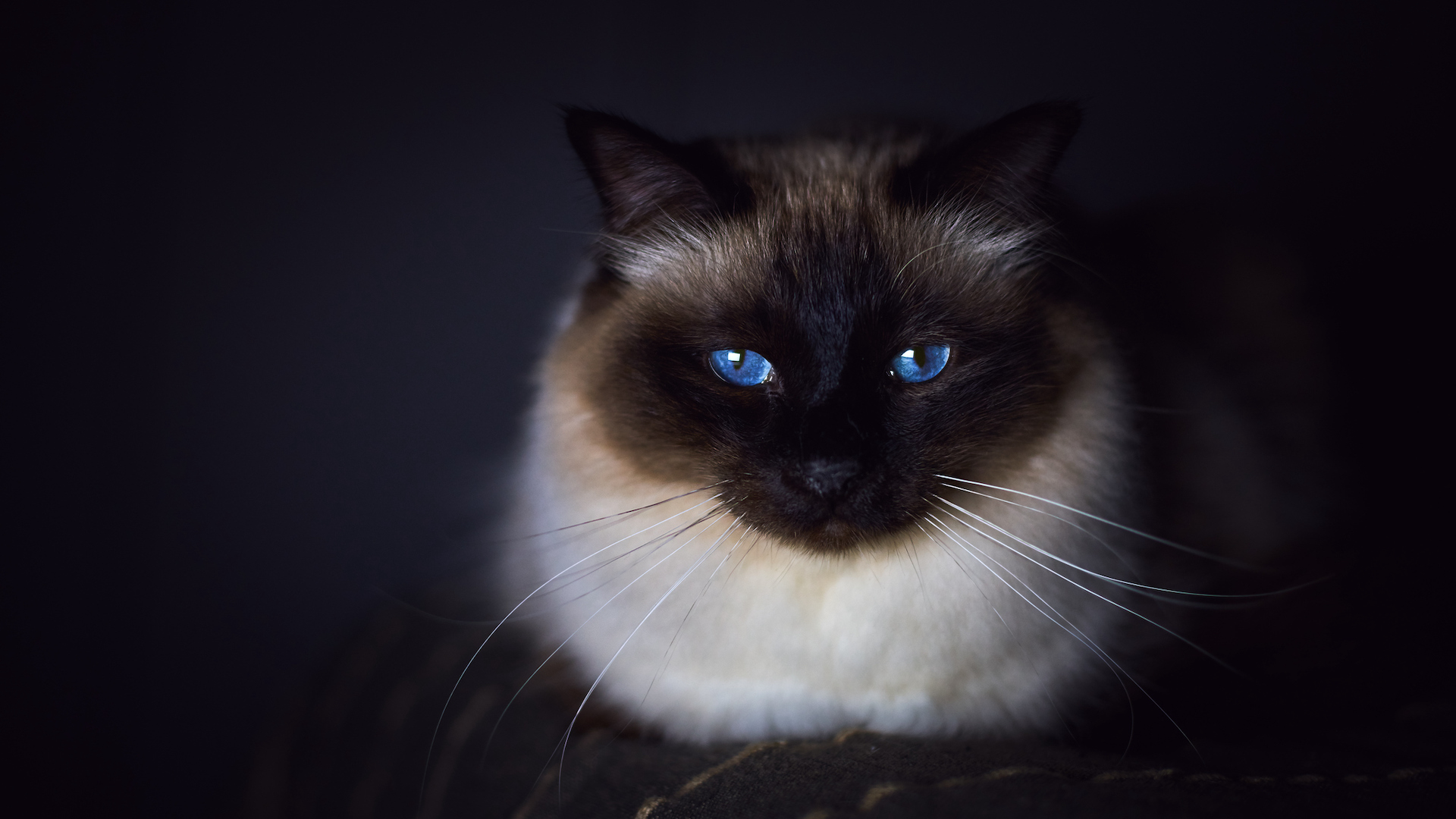
A birman’s eyes are almost round with a sweet expression, and always blue, the deeper and more vivid the better. Simply stunning.
4. Golden mist
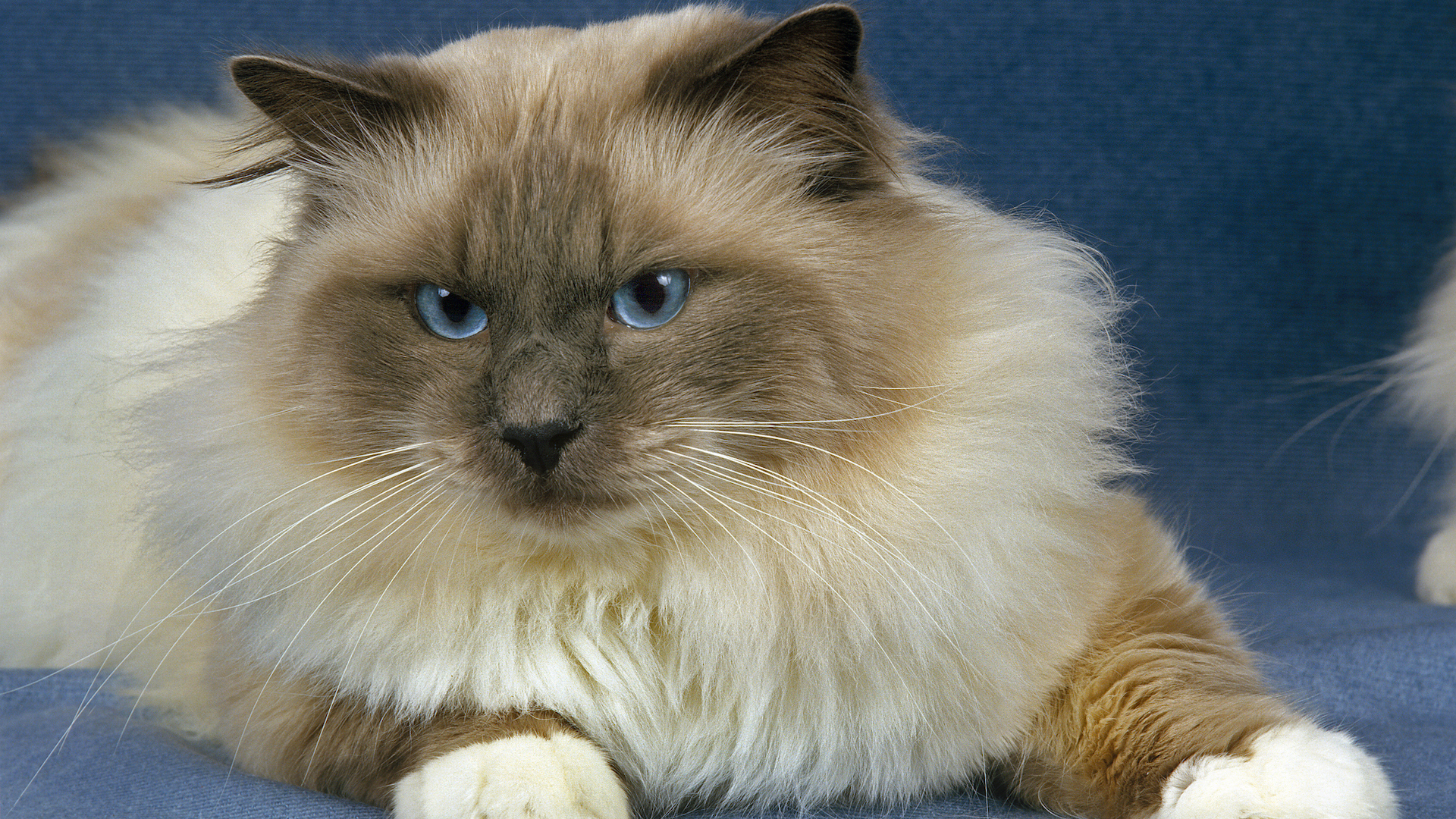
A faint golden color shimmering over the back and sides of the birman’s coat is highly desirable. Legend has it that several millennia ago, the white coat of a priest’s temple cat, named Sinh, turned golden as he turned to a goddess to save his people from invaders when his master was killed. After Sinh himself died, his fellow temple cats underwent the same miraculous transformation – and apparently, their descendants have been that way ever since.
5. Lovely laces
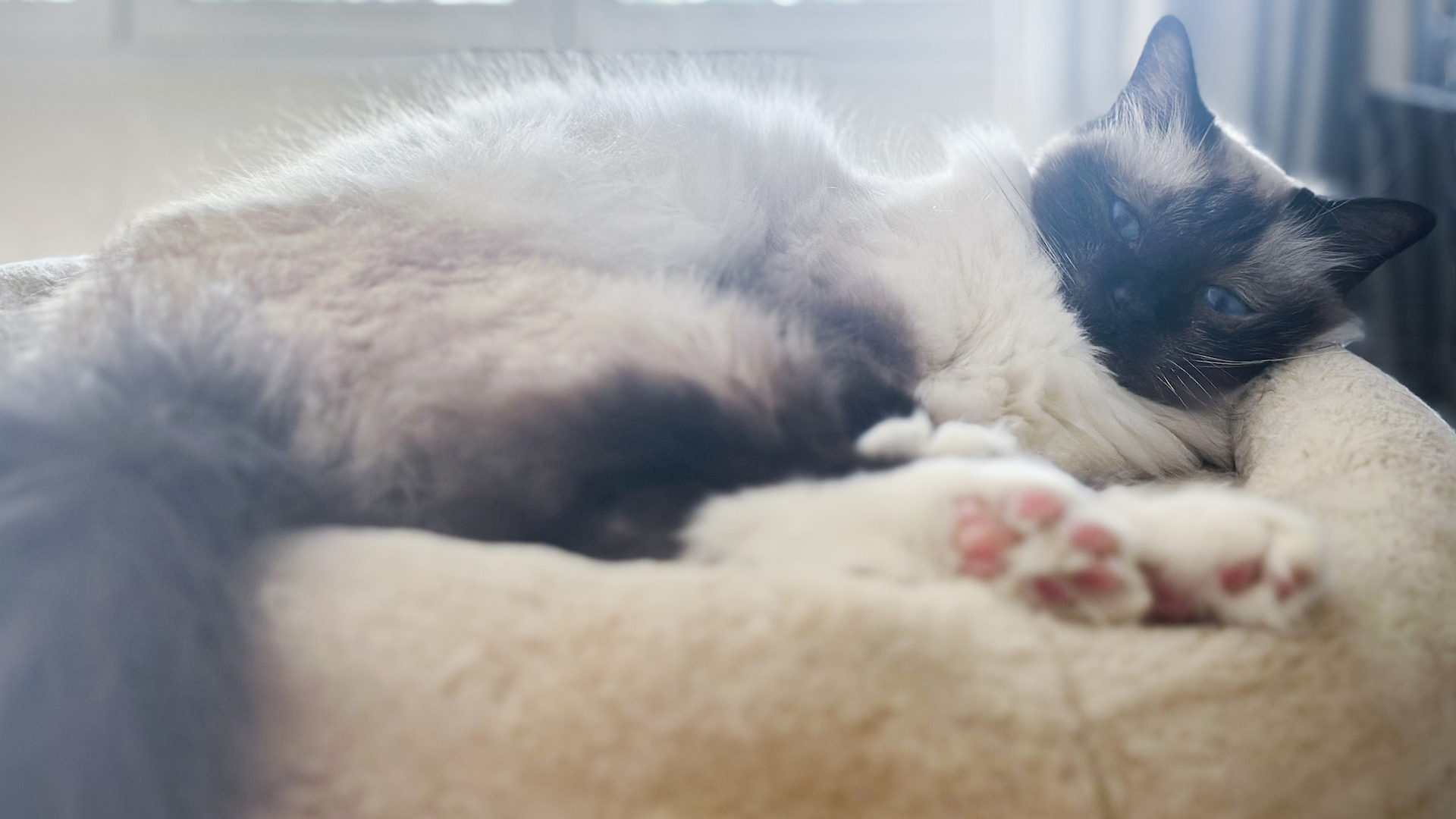
All birmans have laces – white, V-shaped areas of fur on their back legs which come up from their white paws to a point at the hock. Legend has it that the whiteness is a sign of purity stemming from their spiritual experiences as temple cats.
6. Roman nose
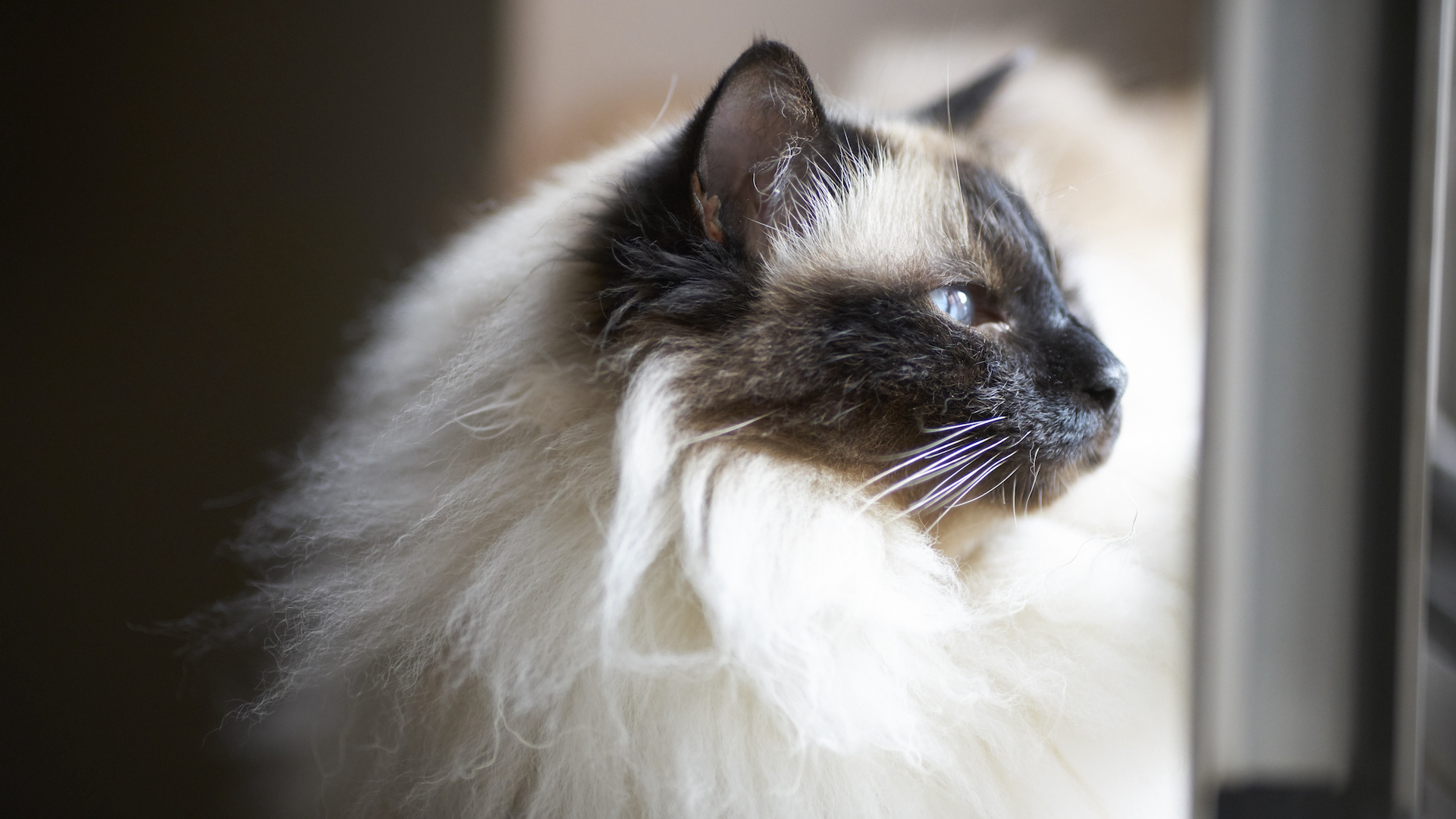
Birmans have a prominent bridge on their nose, which looks curved if you at their face in profile. This gives them a noble, proud expression.
7. French first
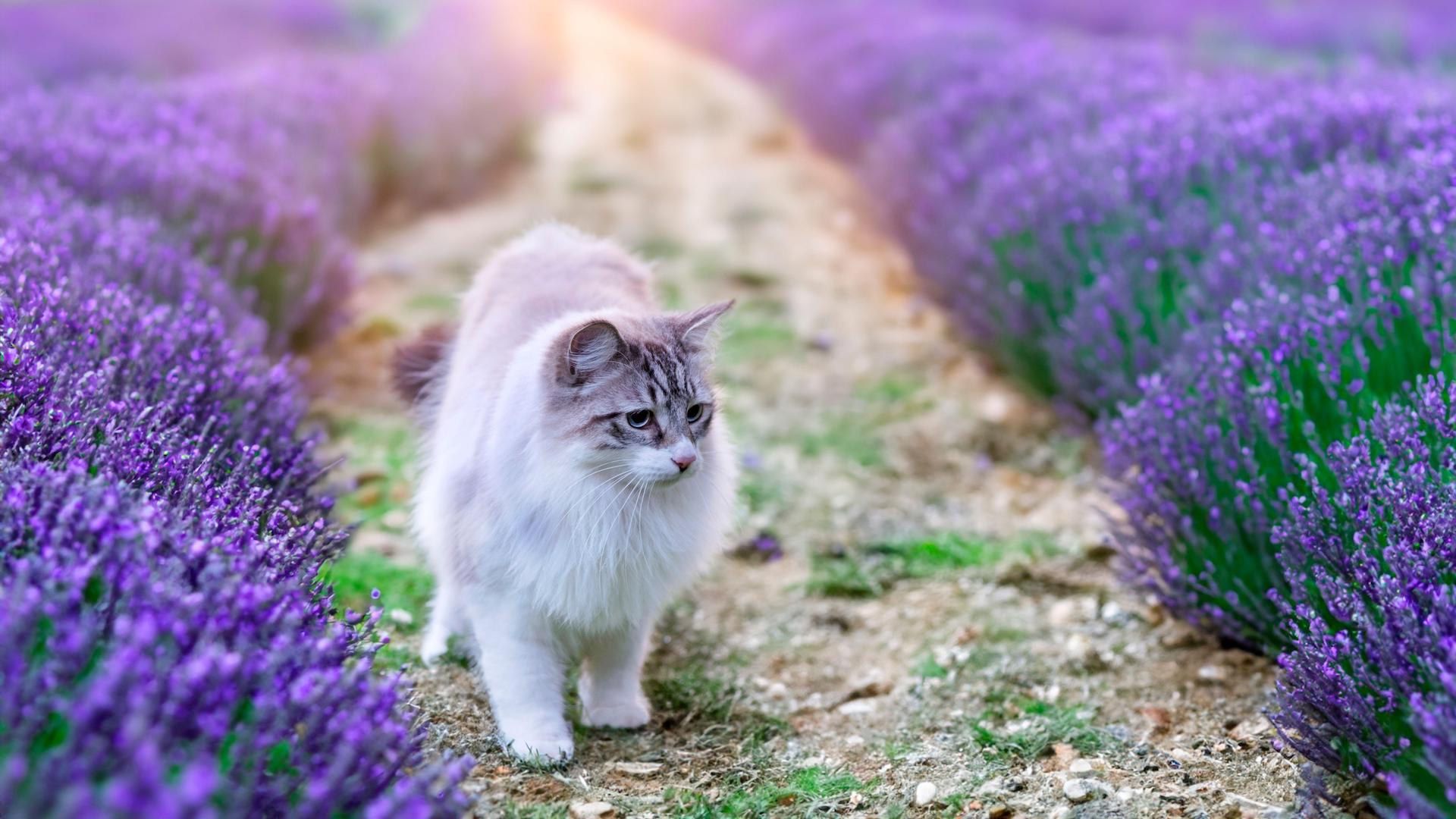
The birman cat first became recognized as an official breed in France in 1925, followed by England in 1966, with the US acknowledging it a year later. It has gone on to become one of the most popular breeds worldwide.
8. Non-matting fur
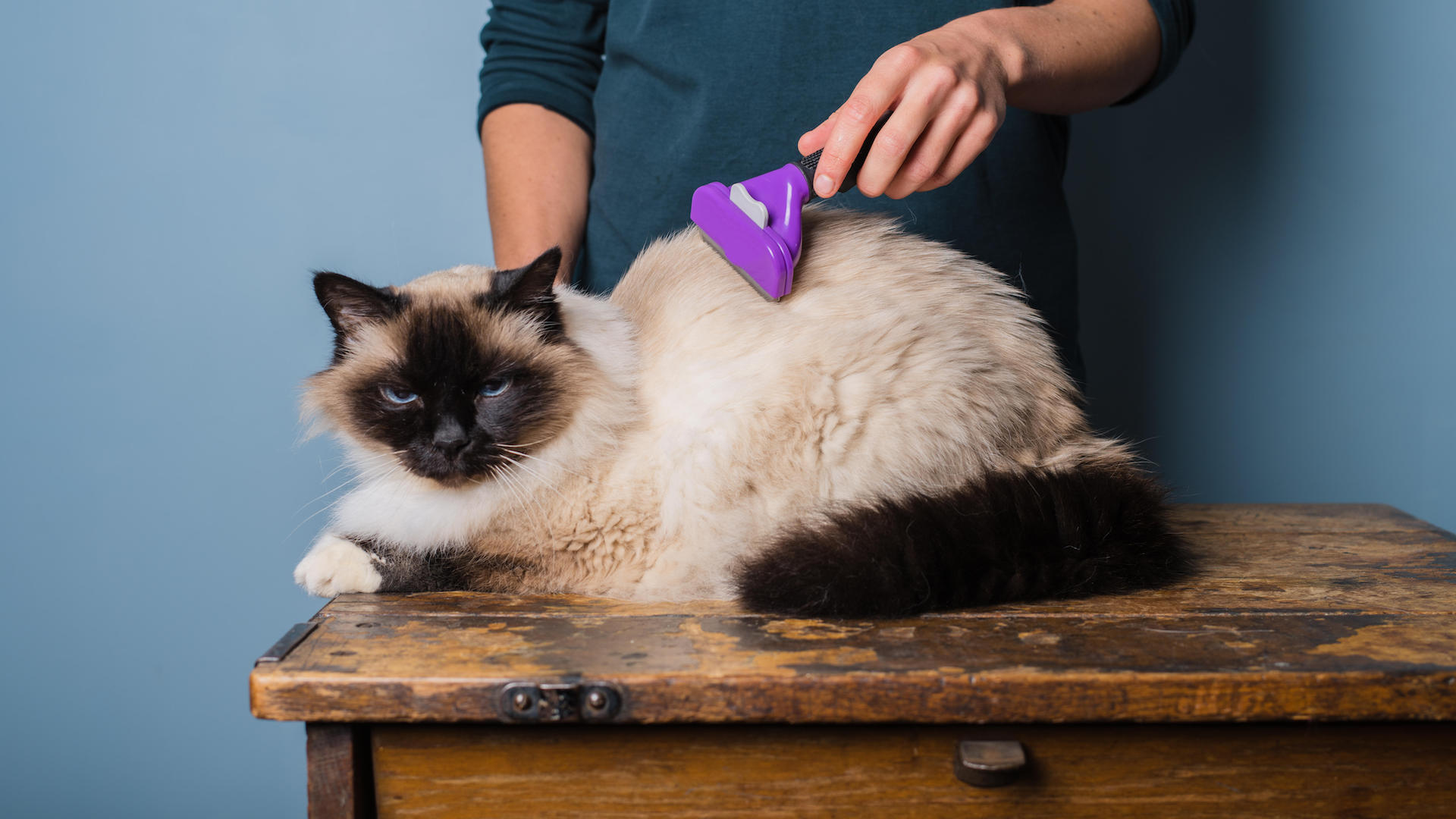
A massive bonus to the birman’s semi-long, silky fur is that it is not prone to matting. While it looks luxuriant, it is a single coat, so requires less maintenance than most cats of a similar length. A quick brush with one of the best cat brushes twice a week should suffice.
9. Born white
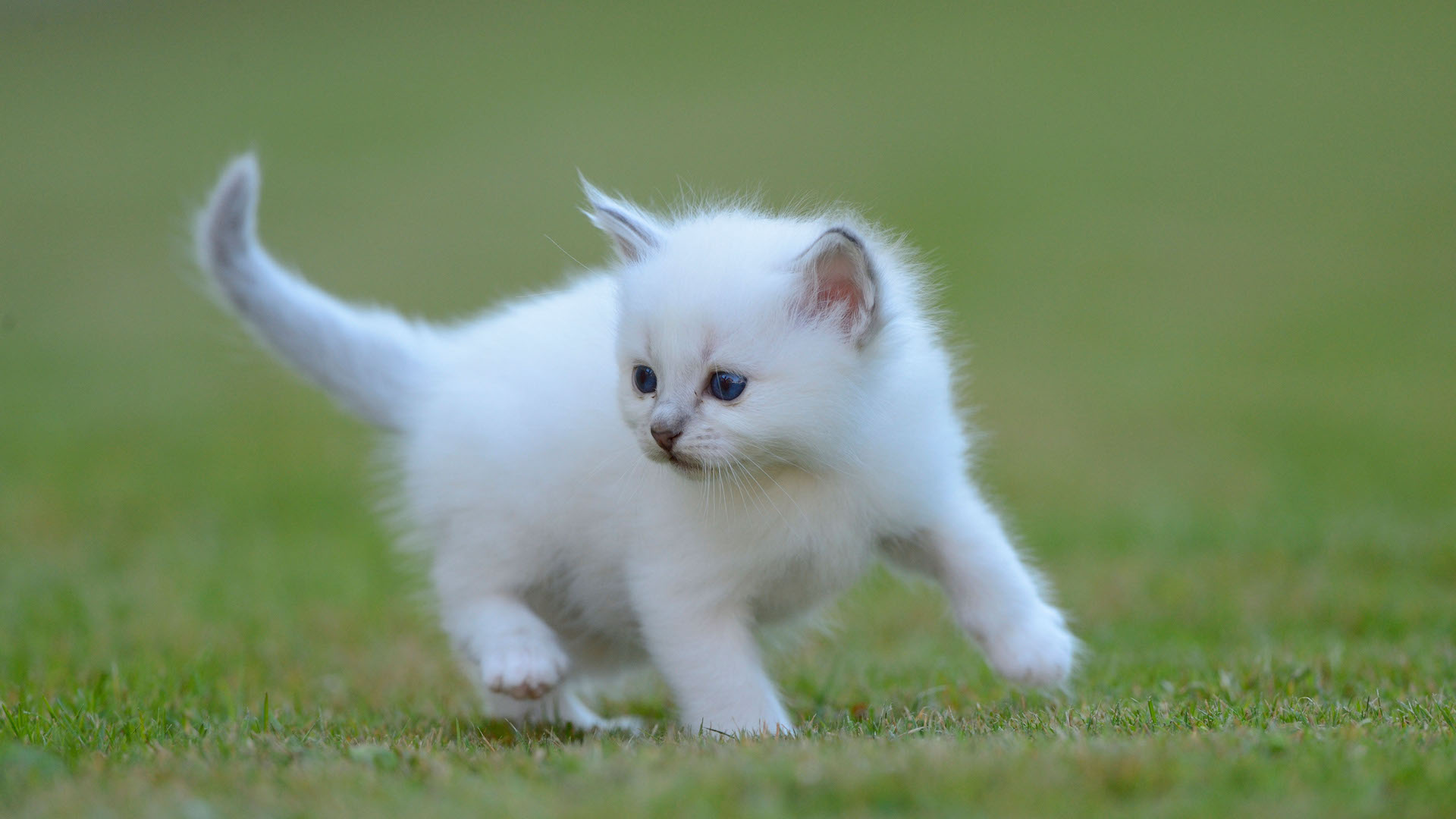
All birmans are born pure white, and the color and pointing develop as they mature – though their paws will remain white. They start changing to their adult color when they are still tiny, around one to two weeks old, but it may take another two years to have their full adult coat. The ultimate glow-up.
10. Burmese confusion
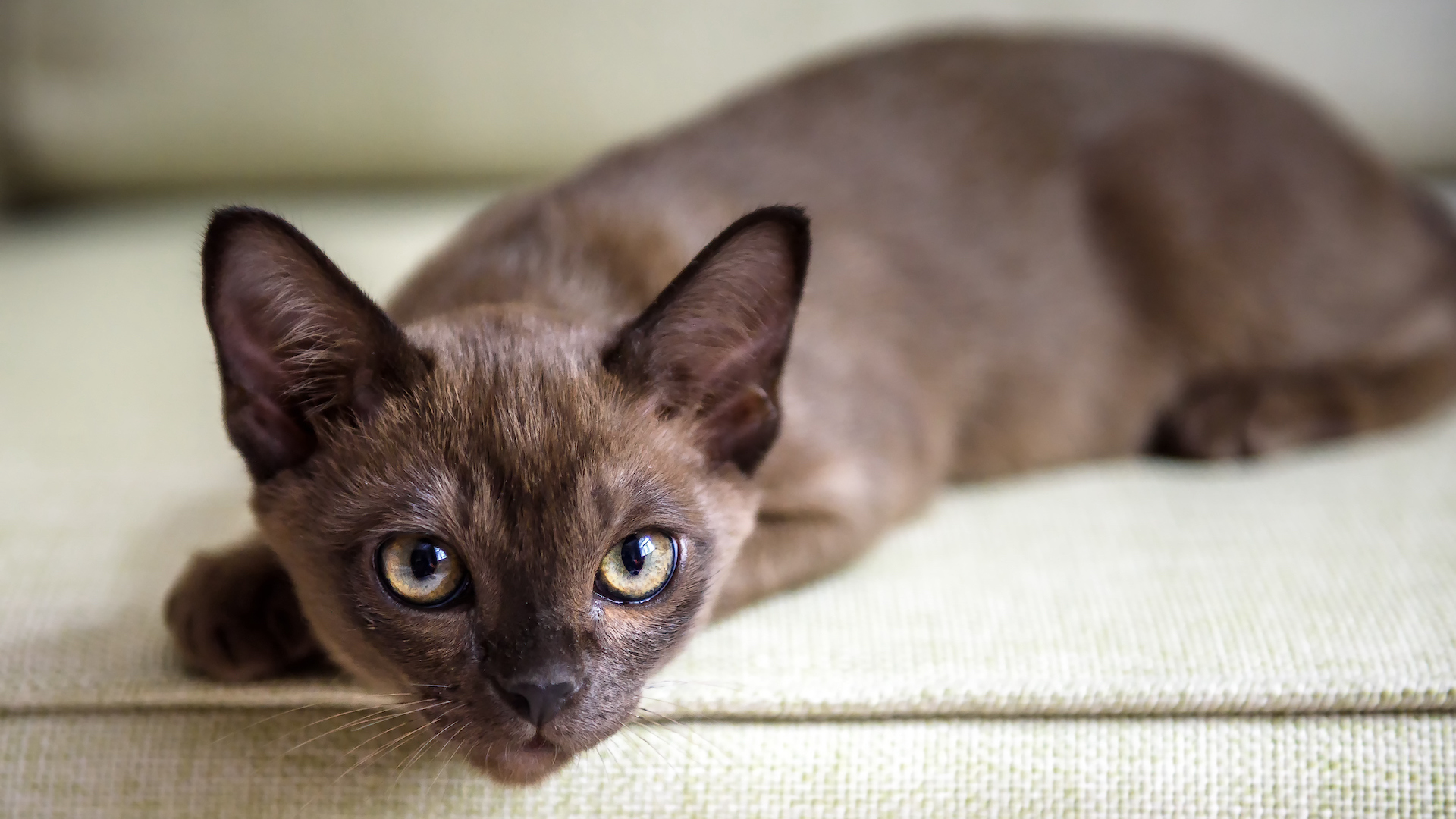
Don’t get your birmans mixed up with Burmeses! Although both are believed to have their ancestral roots in Burma (now Myanmar), they are completely different breeds.
They look different – with the darker Burmese having a short, close-lying, and satin-textured coat, compared to the paler birman’s long and silky fur. The former’s eyes are yellowy-gold which is just one of many reasons to love Burmese cats. One has no white markings at all, the other has mandatory white gloves and laces. And the list goes on...
11. Famous fans

With their soft fur and beguiling blue eyes, it’s no surprise that birmans have attracted a celebrity following. Among the fans of this breed are fashion guru Karl Lagerfeld, whose cat Choupette traveled around the world with him, even appearing in ads. Another was Freddie Mercury – whose birman, Tiffany, was immortalized in the movie Bohemian Rhapsody, played by a blue-point birman.
12. Strange tics
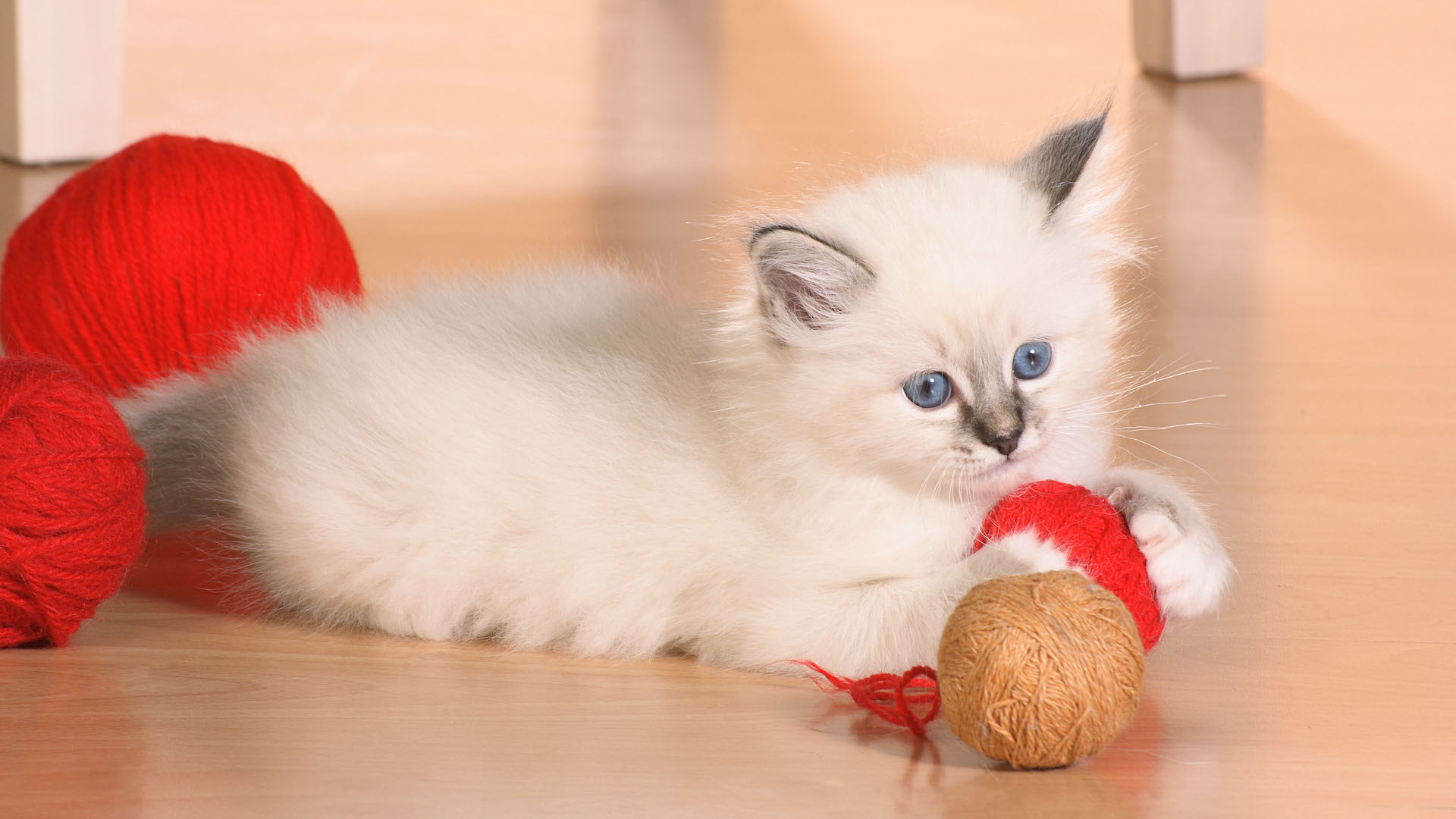
The birman breed is known to produce some cats that have odd behavioral tics such as sucking and chewing non-edible items, like wool or plastic. This compulsive behavior was the subject of a study on wool-sucking in Siamese and birmans in 2015 by the Journal of Veterinary Behavior, which found that early weaning and small litter size were a factor, as well as an abnormally intense appetite.
Providing your feline with the best cat food can help with their intense appetite.
13. Pointed coats
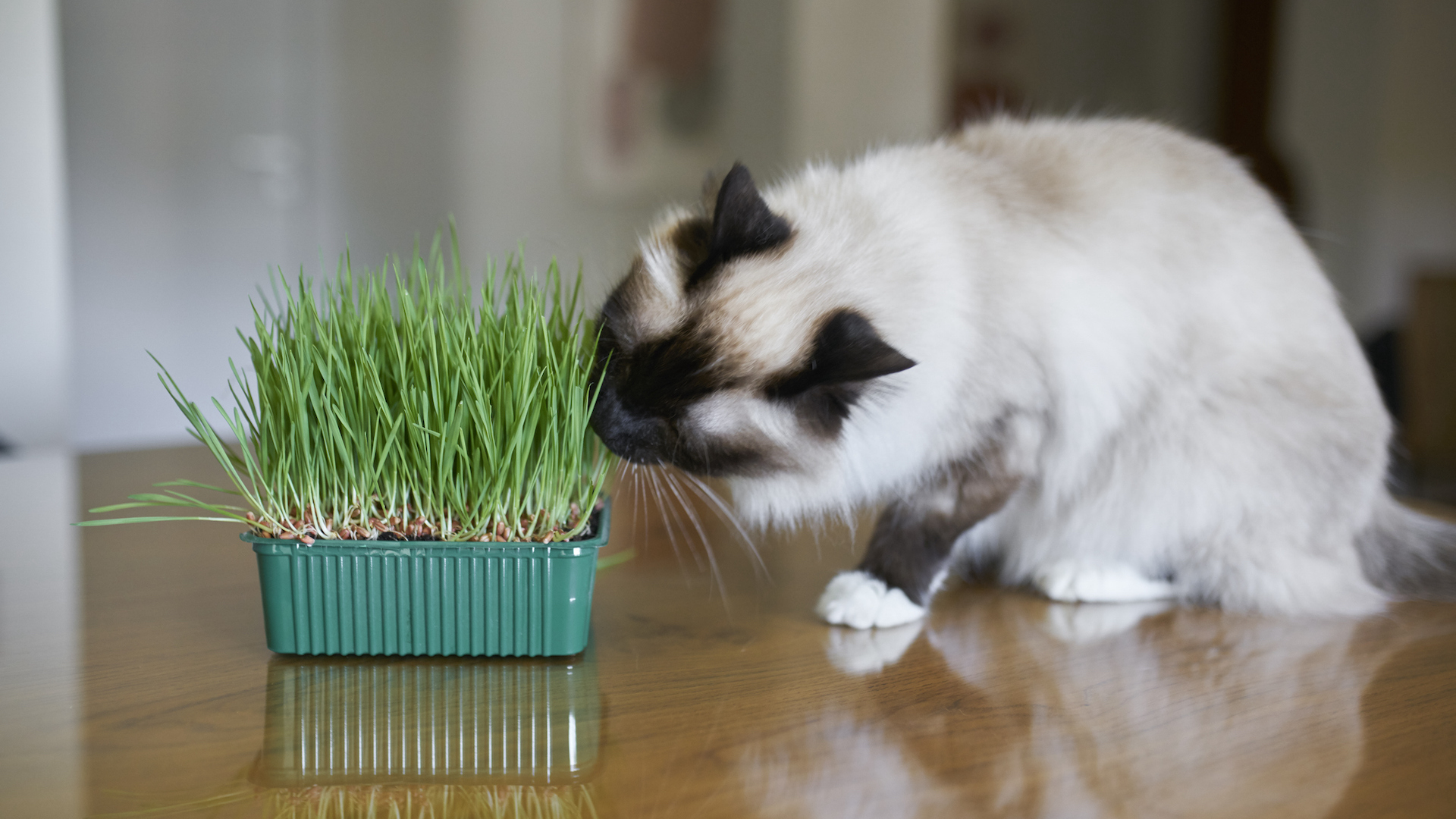
Birmans can be many colors, but what they all have in common is their pointed coats. This means they have paler bodies with darker extremities, such as ear tips, faces, and tails. The feet always remain white, however.
14. Surviving extinction
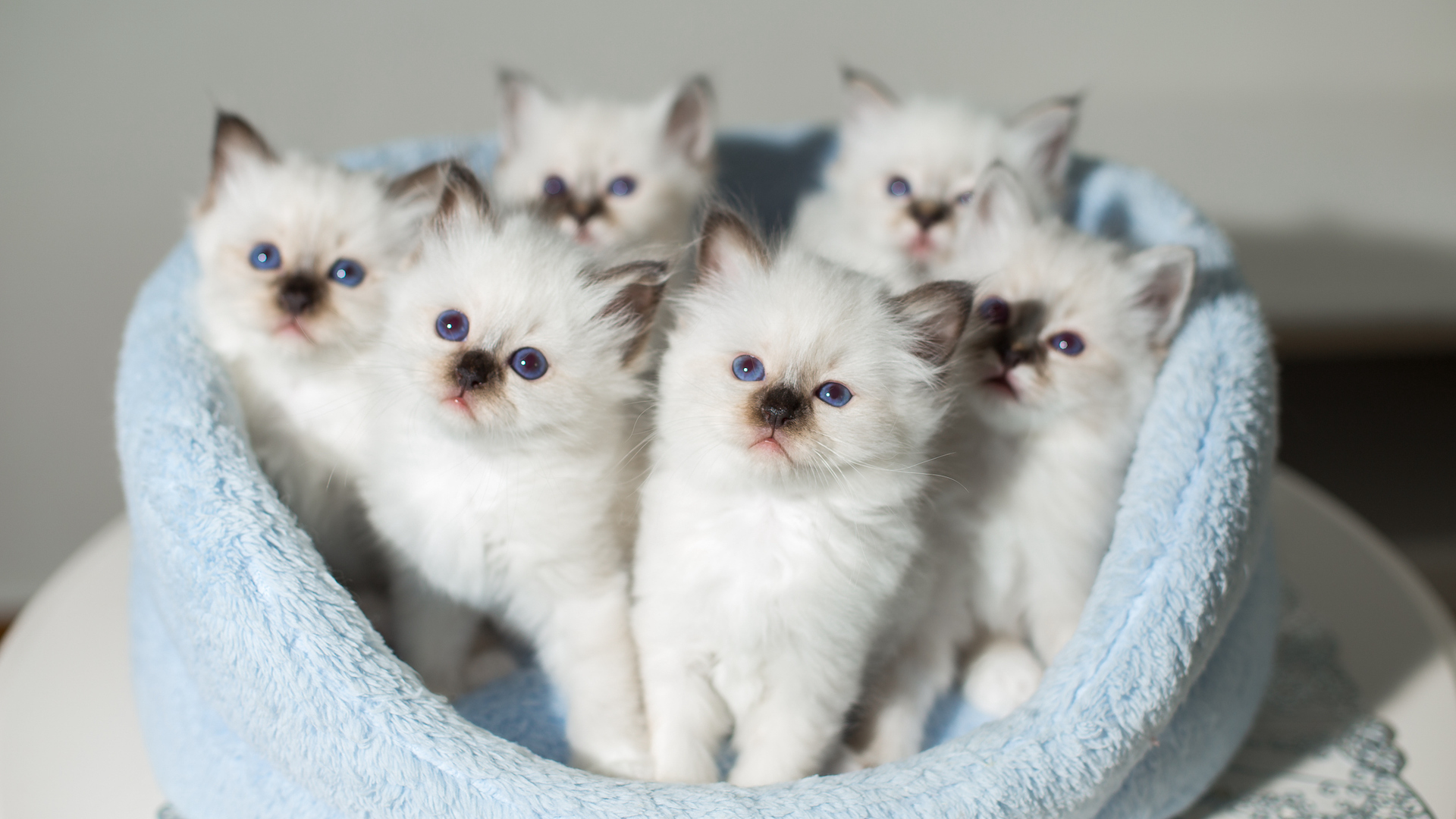
The breed almost died out just as it was getting going. While France is credited with establishing the official breed in the 1920s, it was almost wiped out during World War II, with only two left in France by the end of the war.
This pair were named Orloff and Xenia de Kaabaa, and were used to reignite the breed. This means that they had to be outcrossed with other breeds, but the birman standard gradually reappeared.
15. Friendly felines
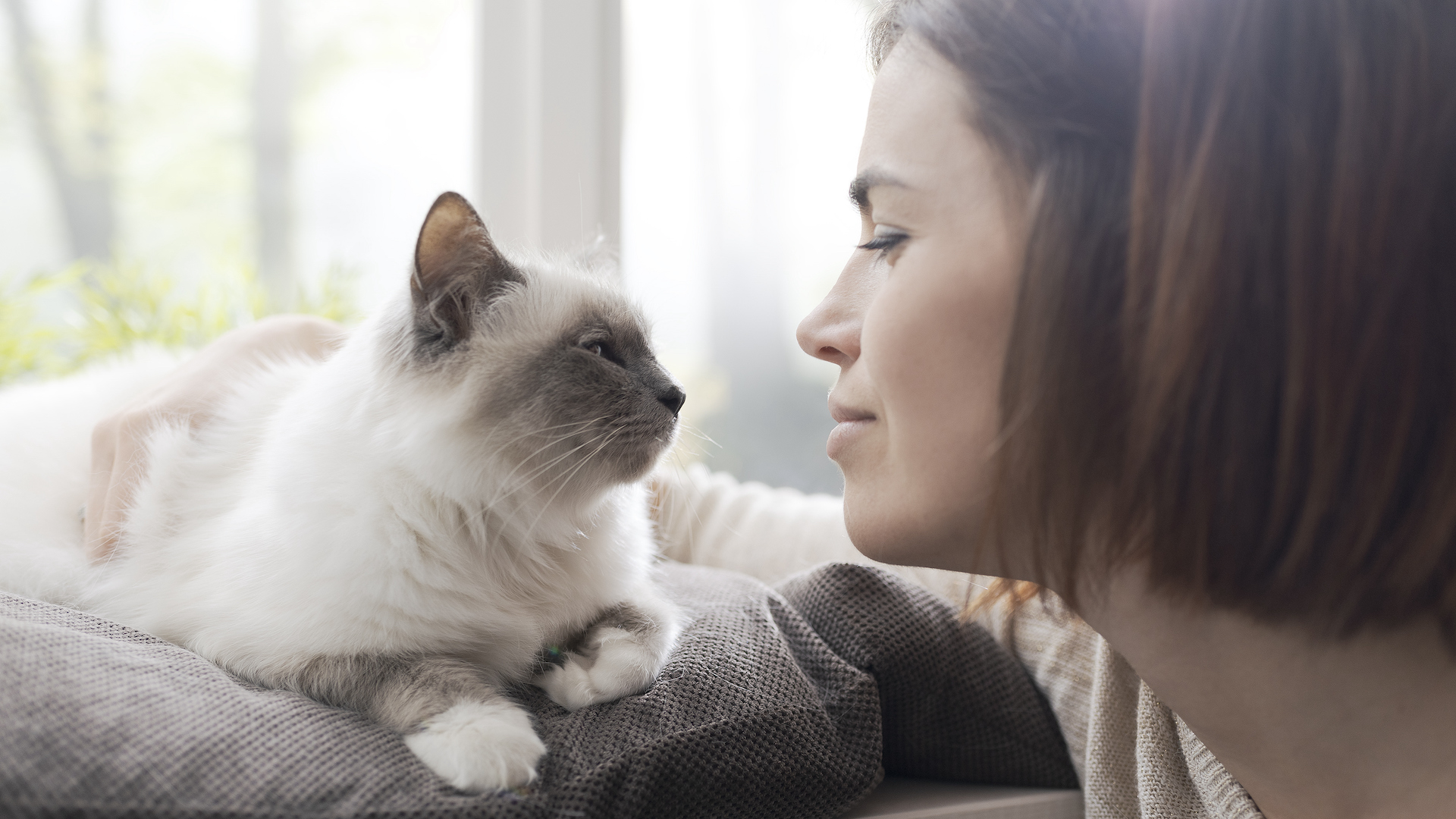
Birman cats are known for their sweet and affectionate personalities, and it’s just as well. With their appealingly silky coats and their beguiling blue eyes, you can’t help but want to stroke them. Happily, they are “people-cats” and love to follow their owners around the home. They also tend to be good with children – they are one of the best cats for kids and families.
16. Territorial
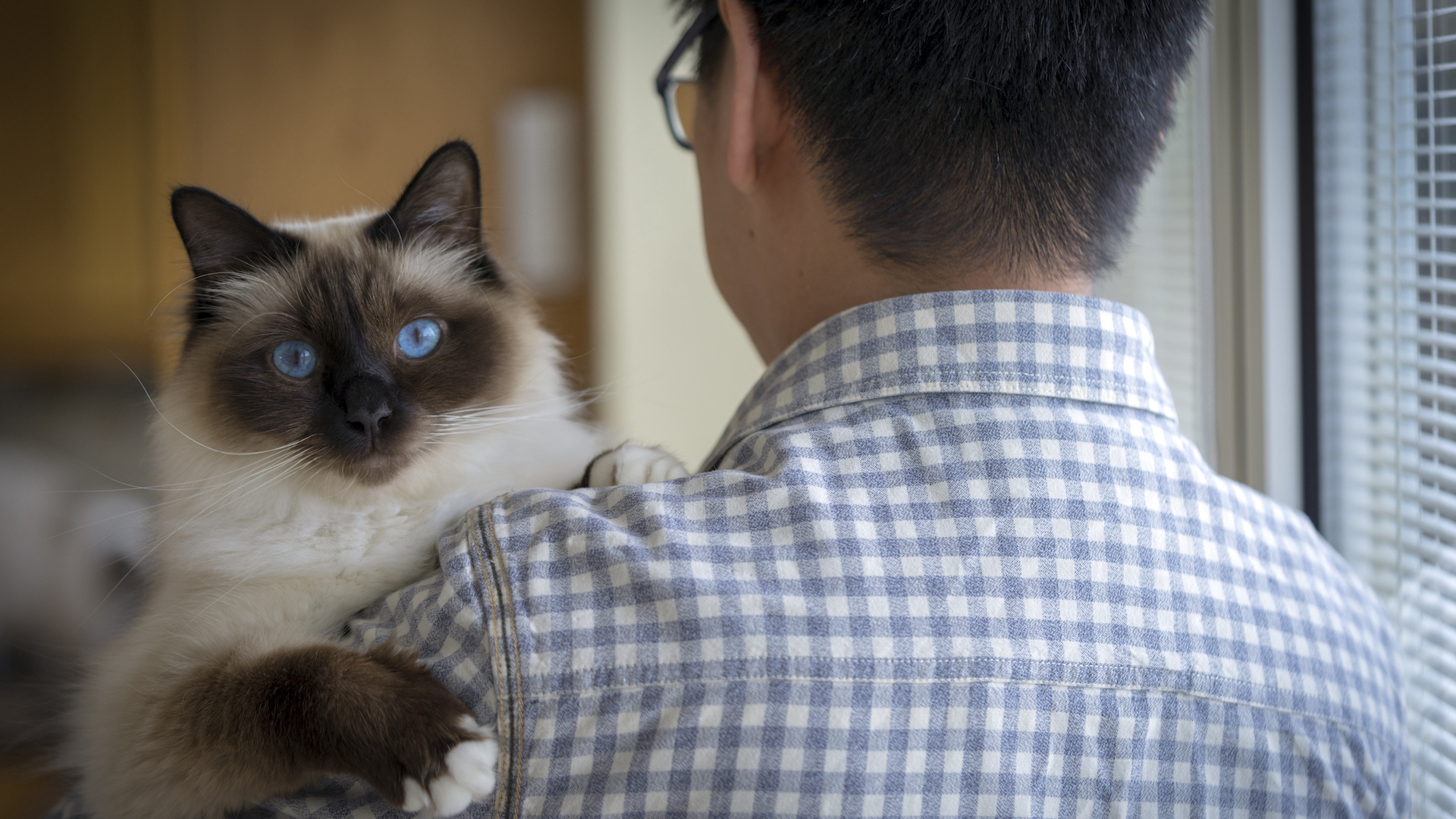
Although birmans are naturally friendly personalities, who tend to form strong bonds with their owners, this sociability can make them a touch on the jealous side. If they don’t get quite as much attention as they think they deserve, or if a new cat is introduced to the household, they can be quite demanding – though never aggressive.
17. Female torties
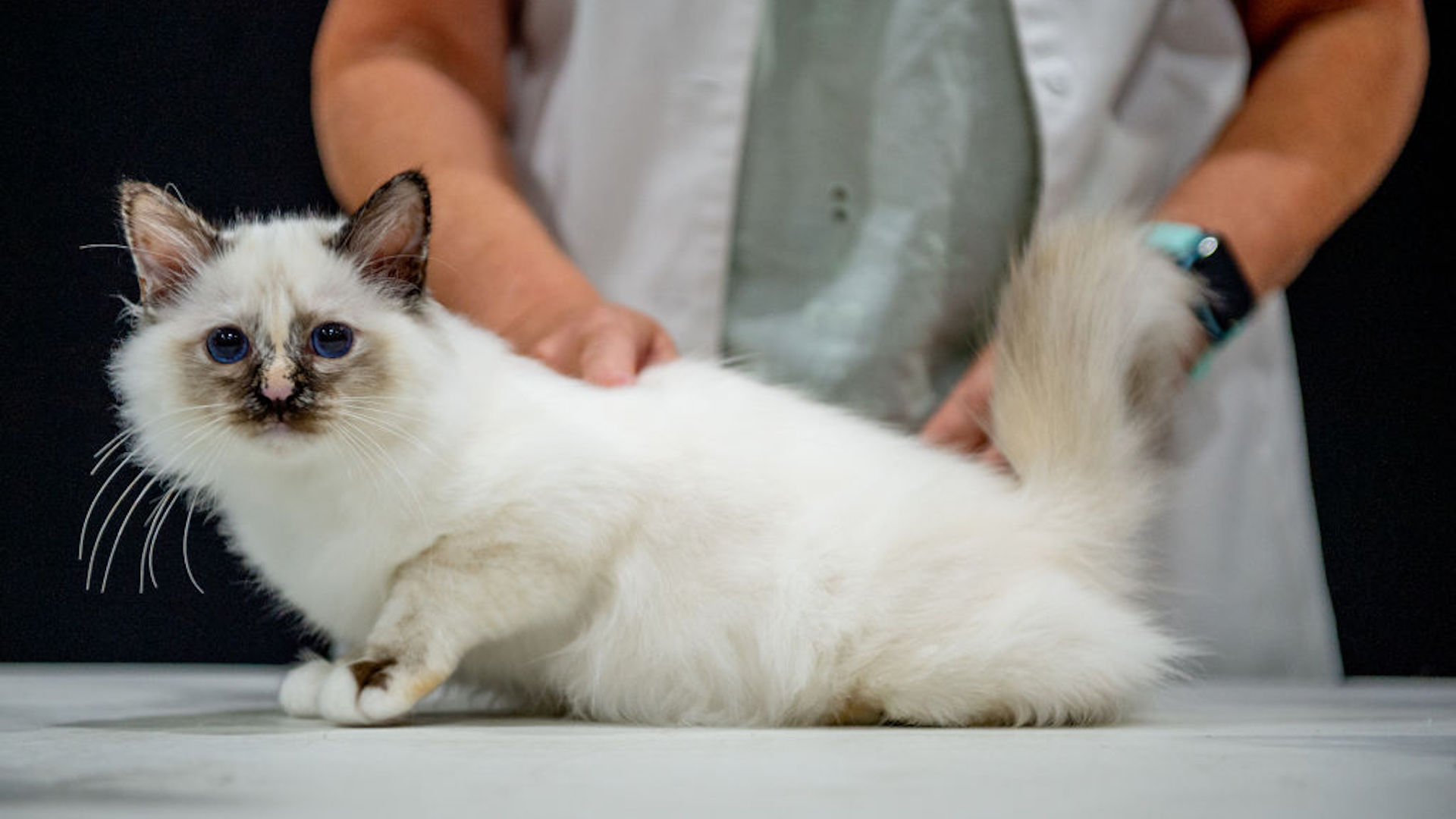
A tortoiseshell birman has two colors mixed into her points. We say “her” because this coloring is only found in female birmans. There is plenty of tortie variety, including seal, blue, chocolate, and lilac.
18. The classic seal
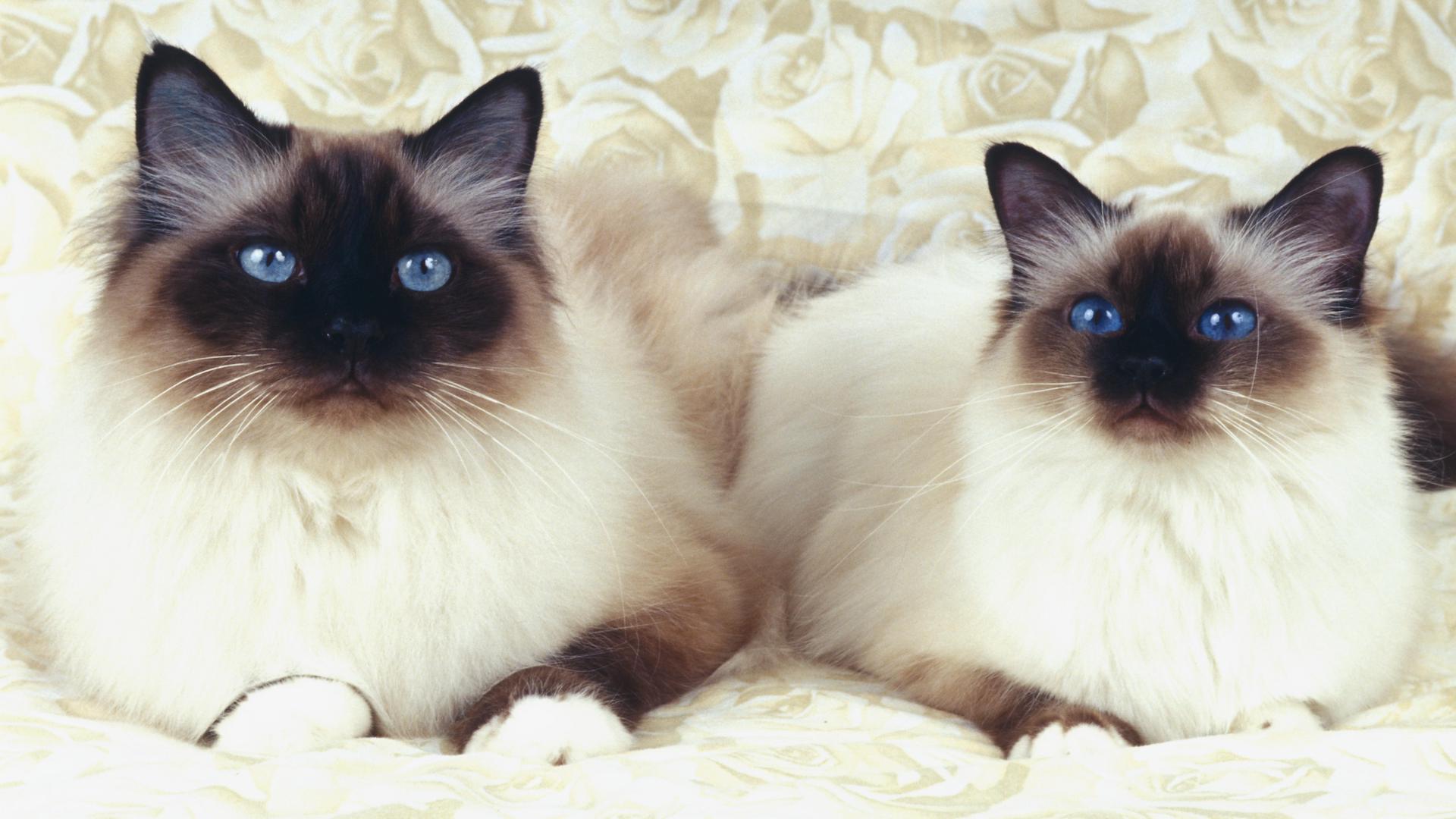
When many people think of a birman cat, they imagine a seal point. This coloring is a golden cream with dark seal brown points on the face, ears, and tail. This is the most common and popular color and is the darkest of the options. It creates a stunning contrast between the cream body, the dark brown points, and the sapphire blue eyes.
19. Therapy cats
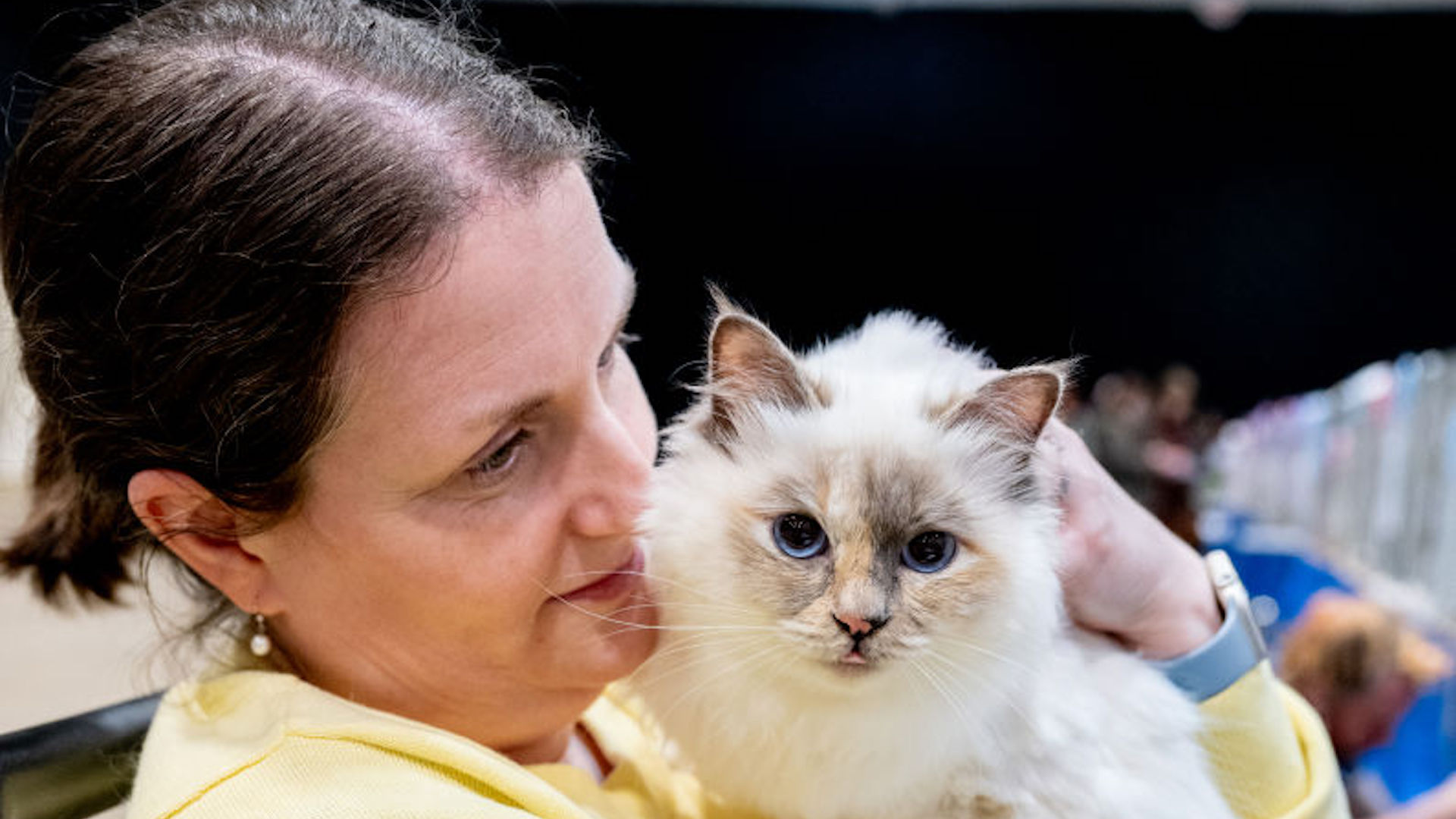
Birmans are known for their calming presence and so this soft and gentle breed is often used as a therapy cat. They have been bred as companion cats for decades, love human company, are friendly and laid-back, which makes them ideal for therapy work. They also tend to fit in well in homes with children with special needs.
21. Color me happy
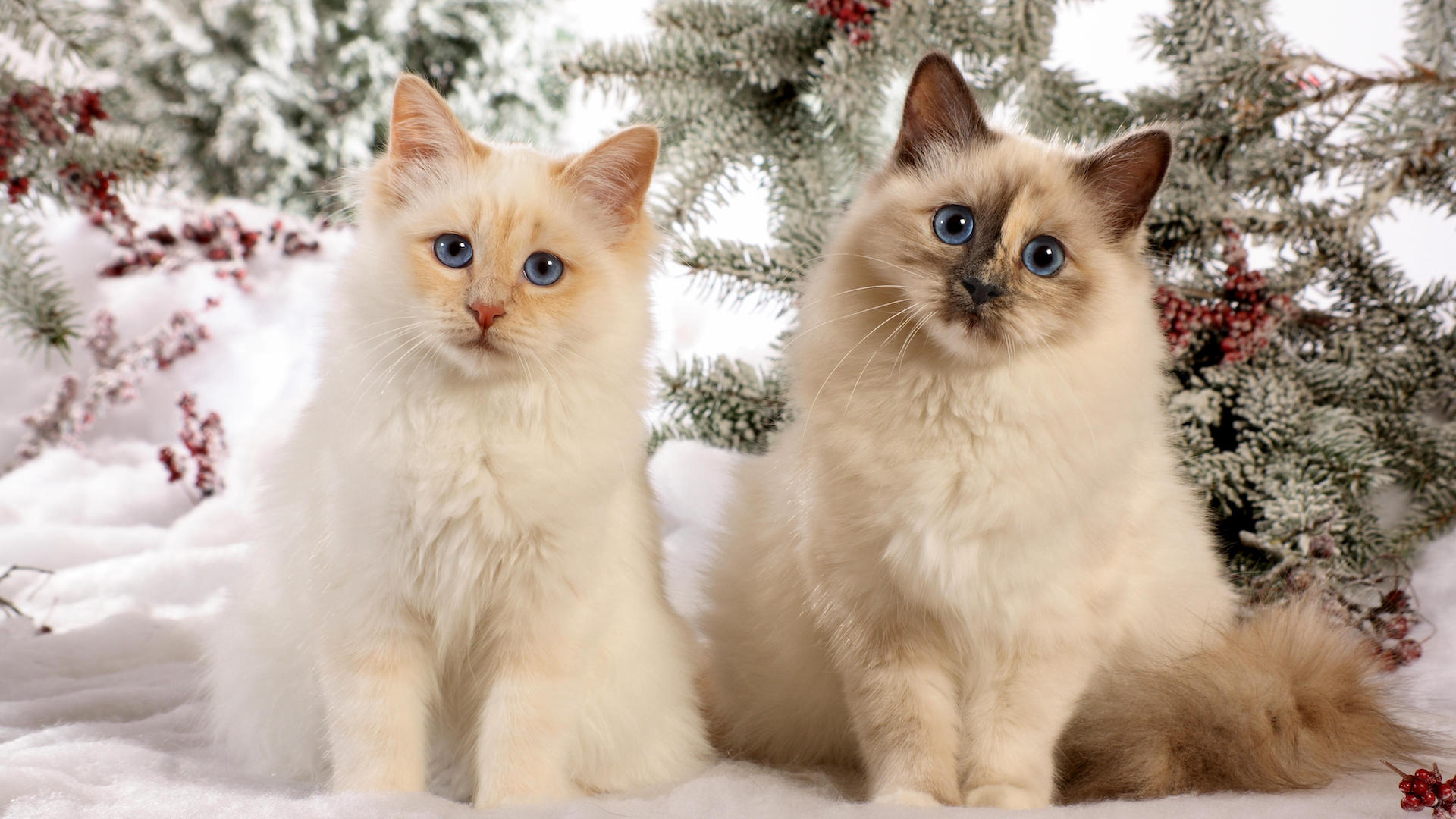
Birman cats are distinctive due to their pointed coat, which has four main colors: seal, blue, chocolate, and lilac. However, some cat associations and councils accept other colors such as red and cream. Regardless of which exact colors are accepted, there are multiple variations on the main color, with tortie, lynx, and tabby options, giving around 20 altogether.
And whatever their coloring, they should always be wearing white socks!
22. The cream/red conundrum
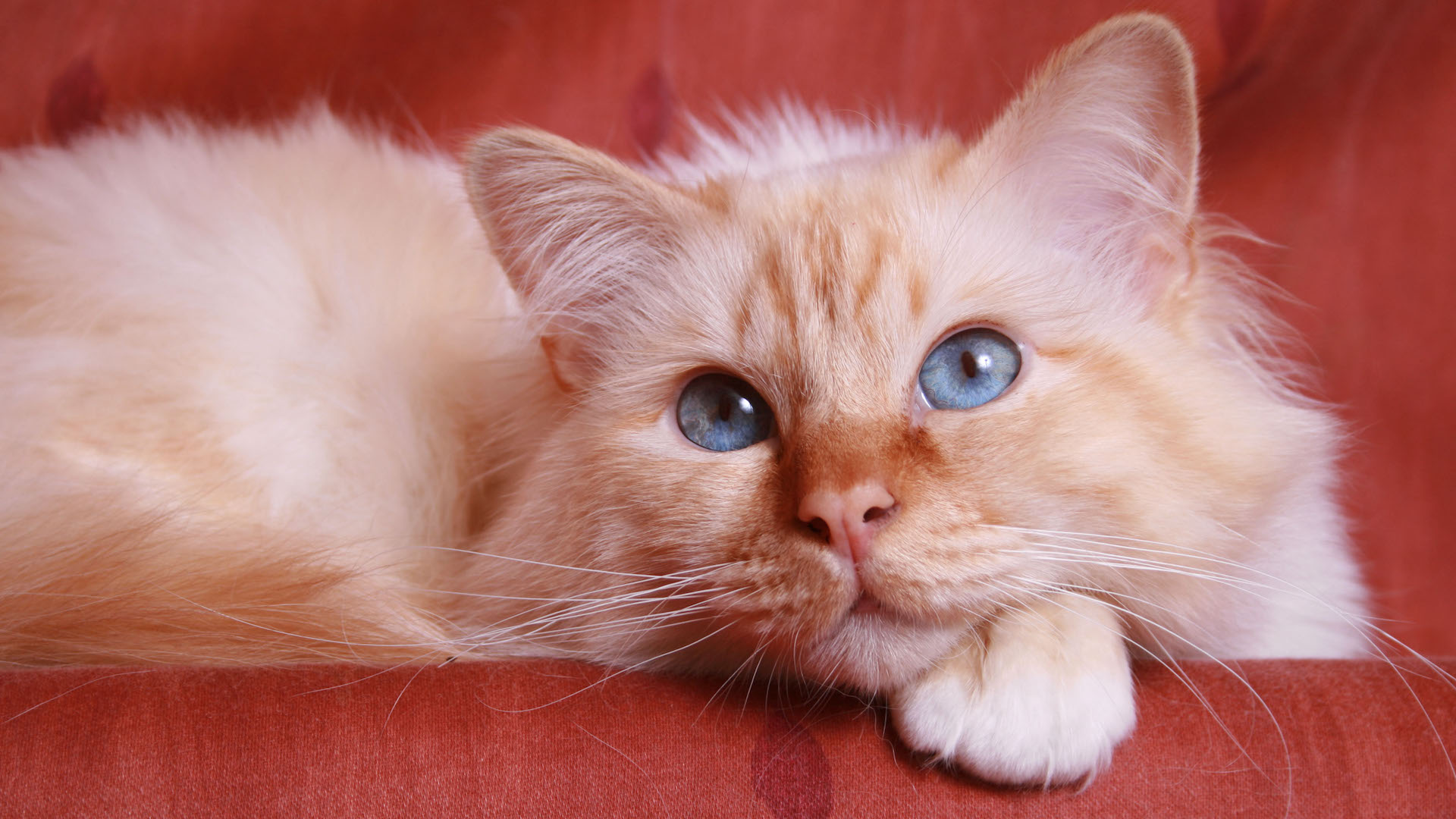
Red and cream Birmans are very similar, despite there being a world difference between the literal colors. Both stay white for a relatively long time before developing orangey tints. The cream is a lighter orange, but even the red stays fairly pale. Certainly don’t expect any crimson hues.
23. Chirrupy cats
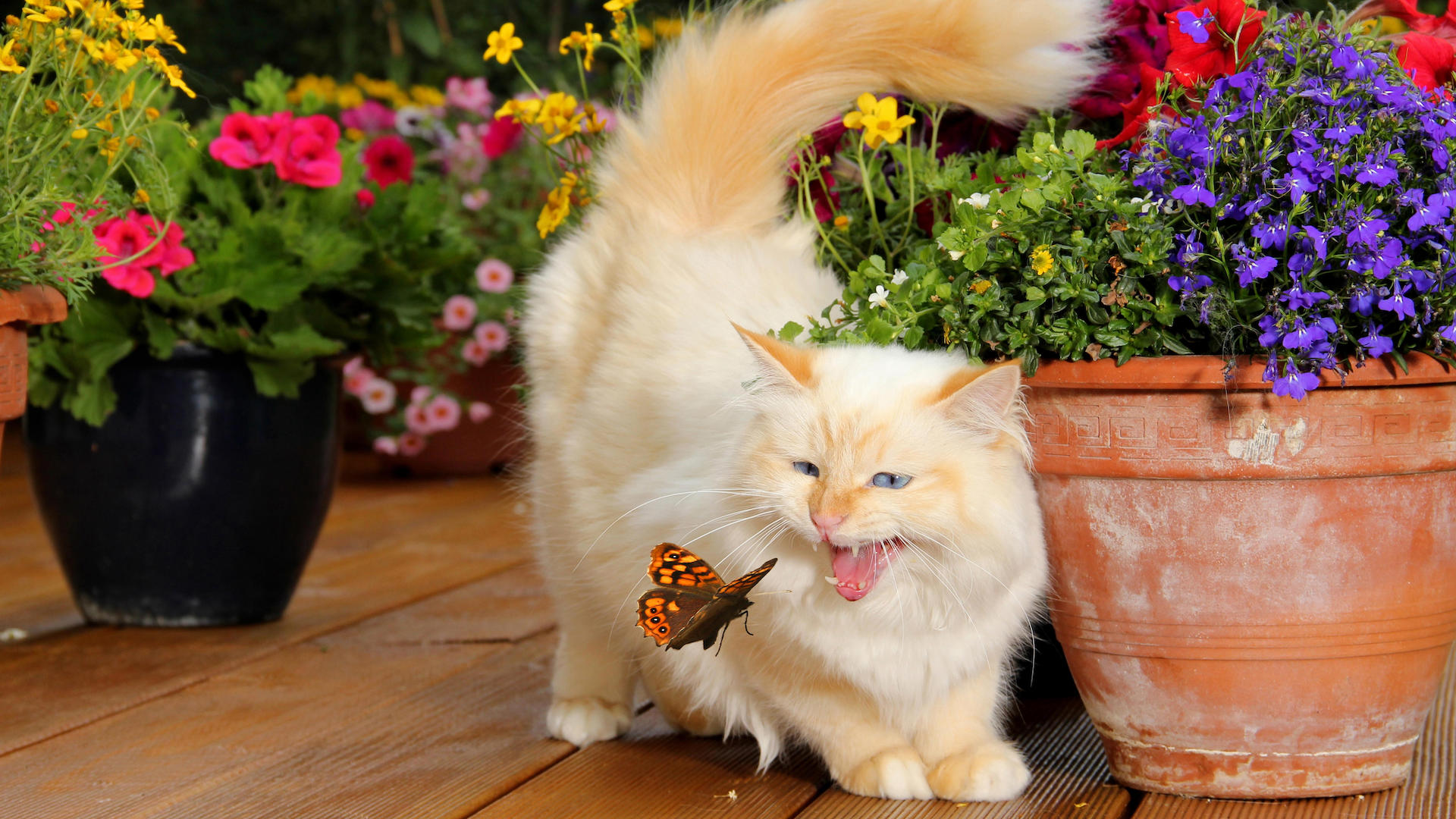
The birman is typically a quiet, mellow cat, who will not yowl and howl, vocalizing instead with soft, chirrupy meows. And of course, they have a grand purr when happily sitting in your lap.
24. Spring shedders
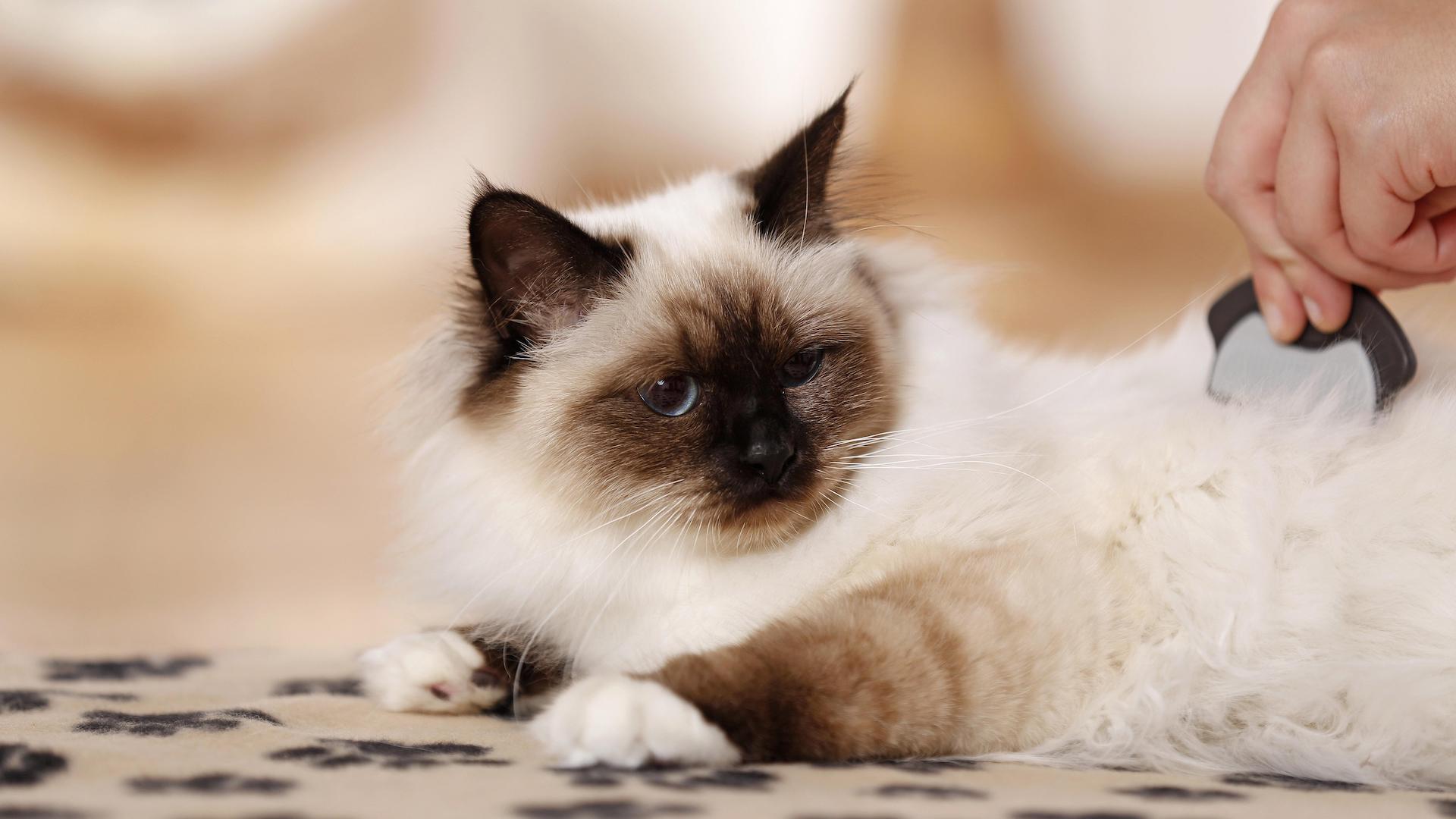
While the Birman’s silky coat requires much less grooming than you might imagine when gazing on their luscious bouffant, they will shed their winter coat in springtime, so are likely to require more intensive grooming when the days start to lengthen.
25. Prone to weight gain
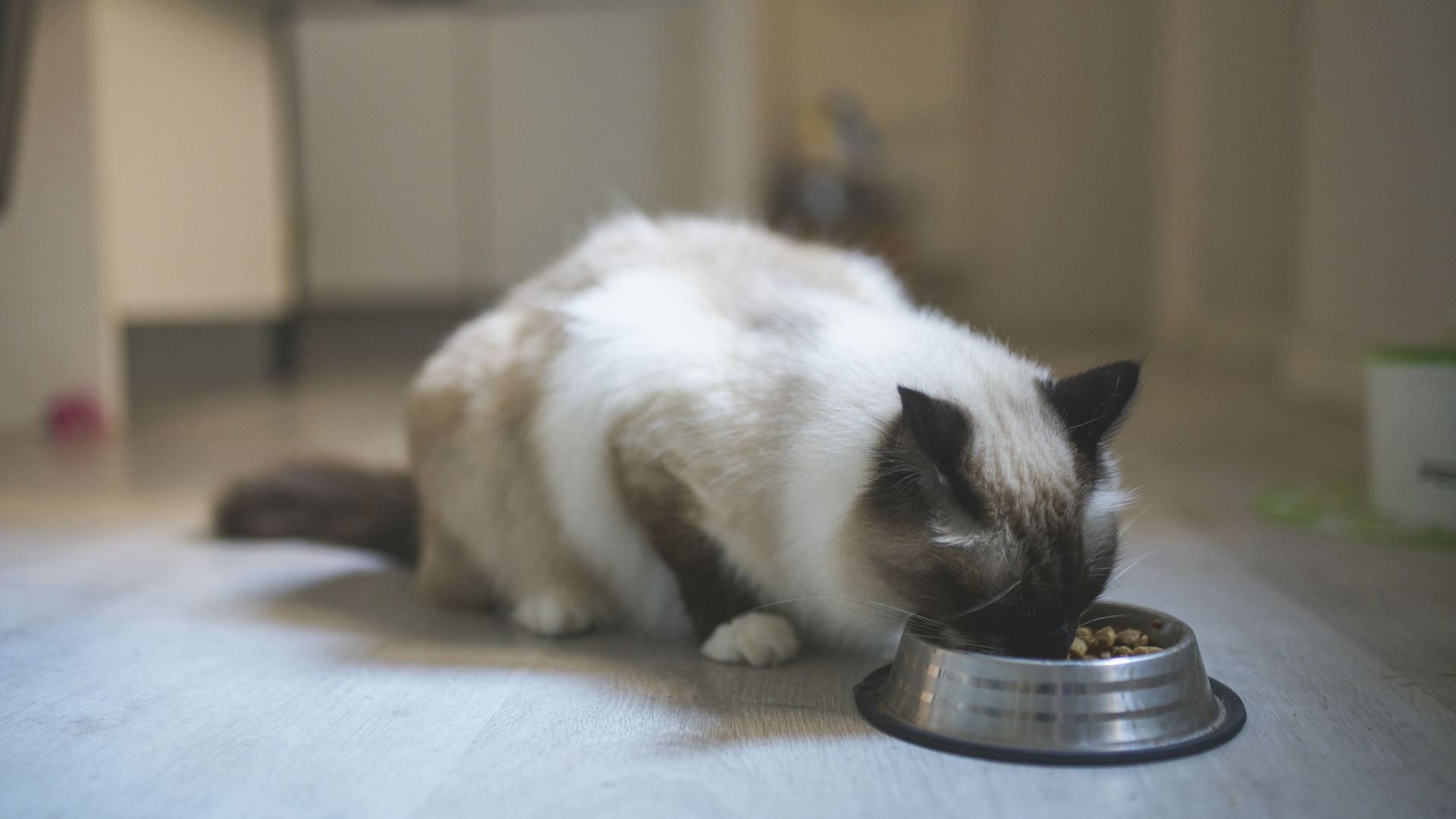
The birman is physically a fairly stocky cat, muscular and strongly built. Being fairly peaceful cats who love to curl up in their human’s lap rather than expend excess energy, they can be prone to weight gain.
Therefore, as well as being judicious with their diet, they benefit from some appropriate feline daily exercise. There are some great cat exercises such as play, exploring, and puzzles, to get them off the sofa and keep them in tip-top shape.
26. Long-lived
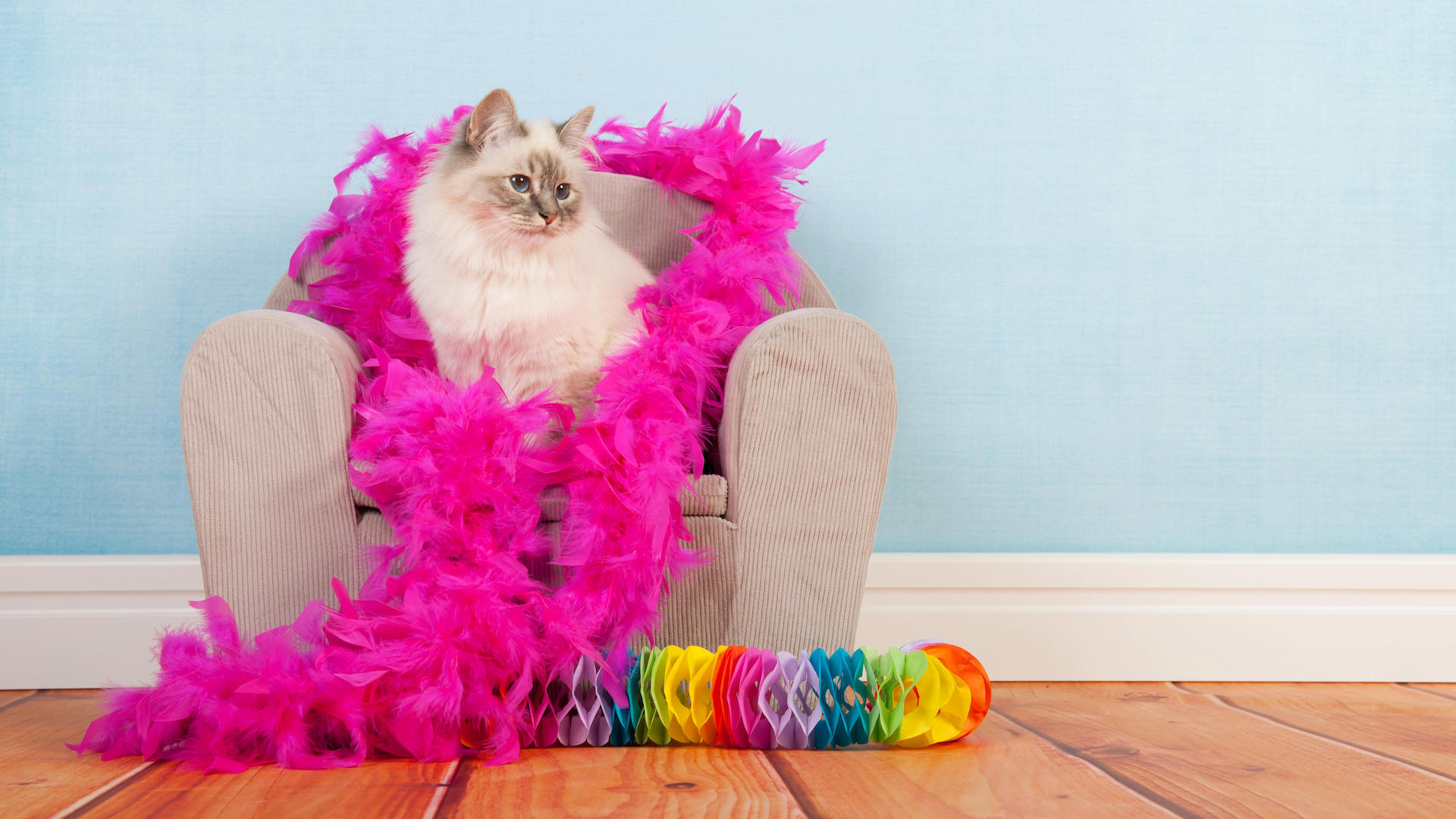
Birman cats are a generally healthy breed, which lives on average for 12–16 years. However, the oldest known birman, named Shandatal Cleome Minx, died at the ripe old age of 23 years, five months, and two days. Minx was a blue point female birman, who lived in the county of Herefordshire in the UK.
27. Chilling out
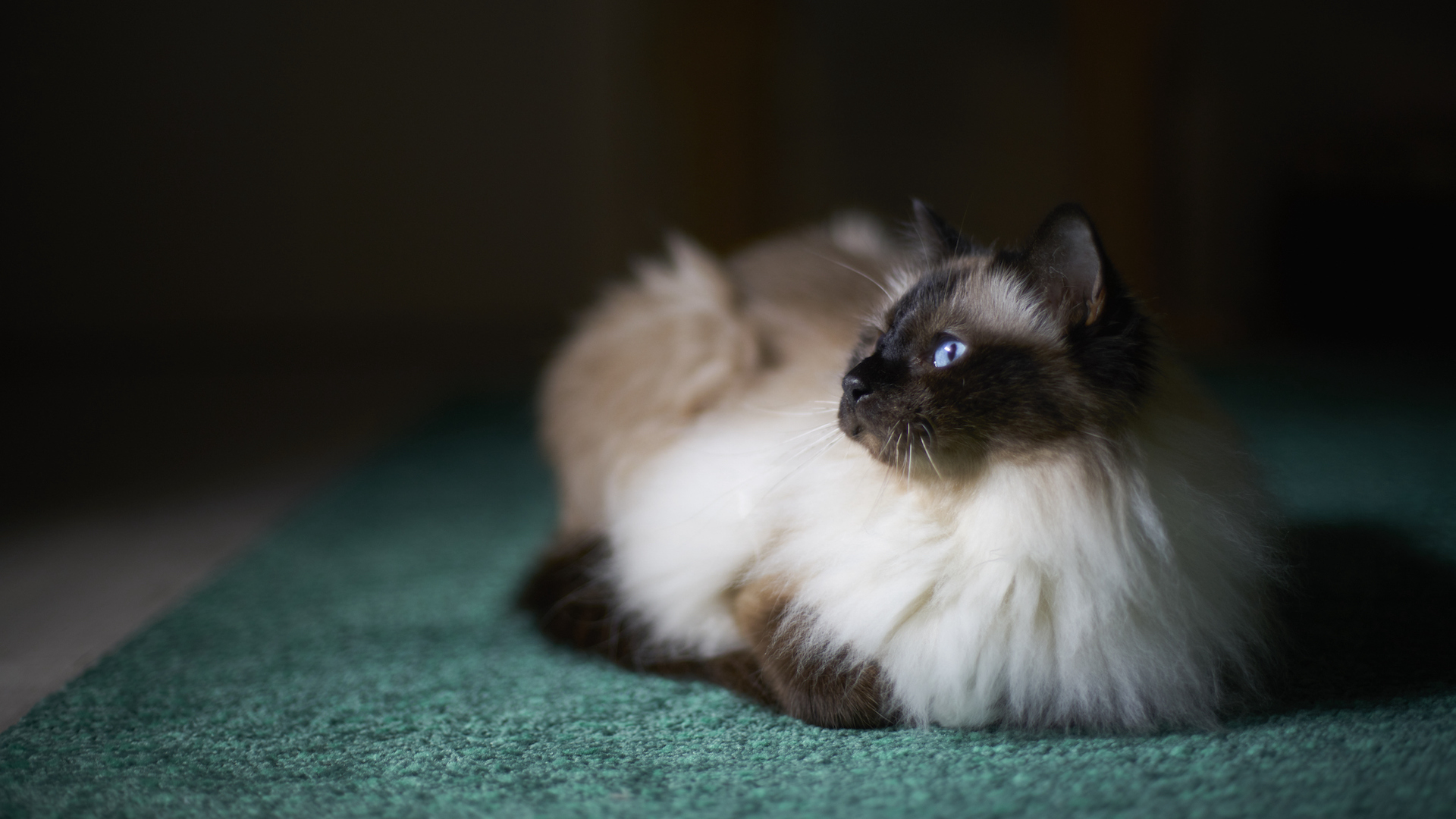
Some cats love to climb, perch on precarious ledges, and hang off curtains, but the birman is not one of them. This chilled-out cat would prefer to hang out at ground level or on a comfy armchair.
28. Not hypoallergenic
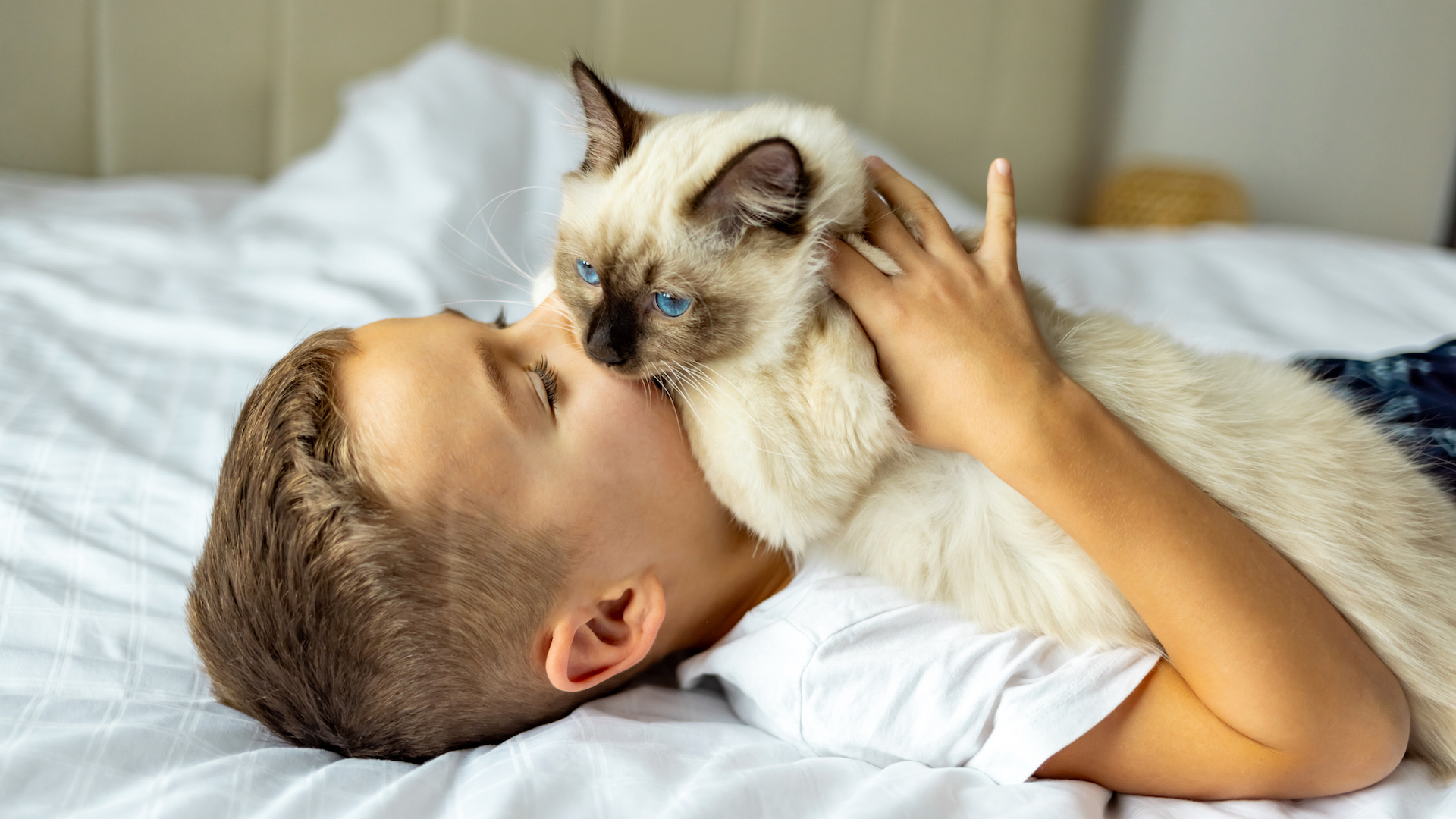
Due to the lack of an undercoat, the birman cat does produce fewer allergens than many other feline breeds. However, they do still shed annually, so they cannot be considered hypoallergenic.
29. Birmans vs ragdolls
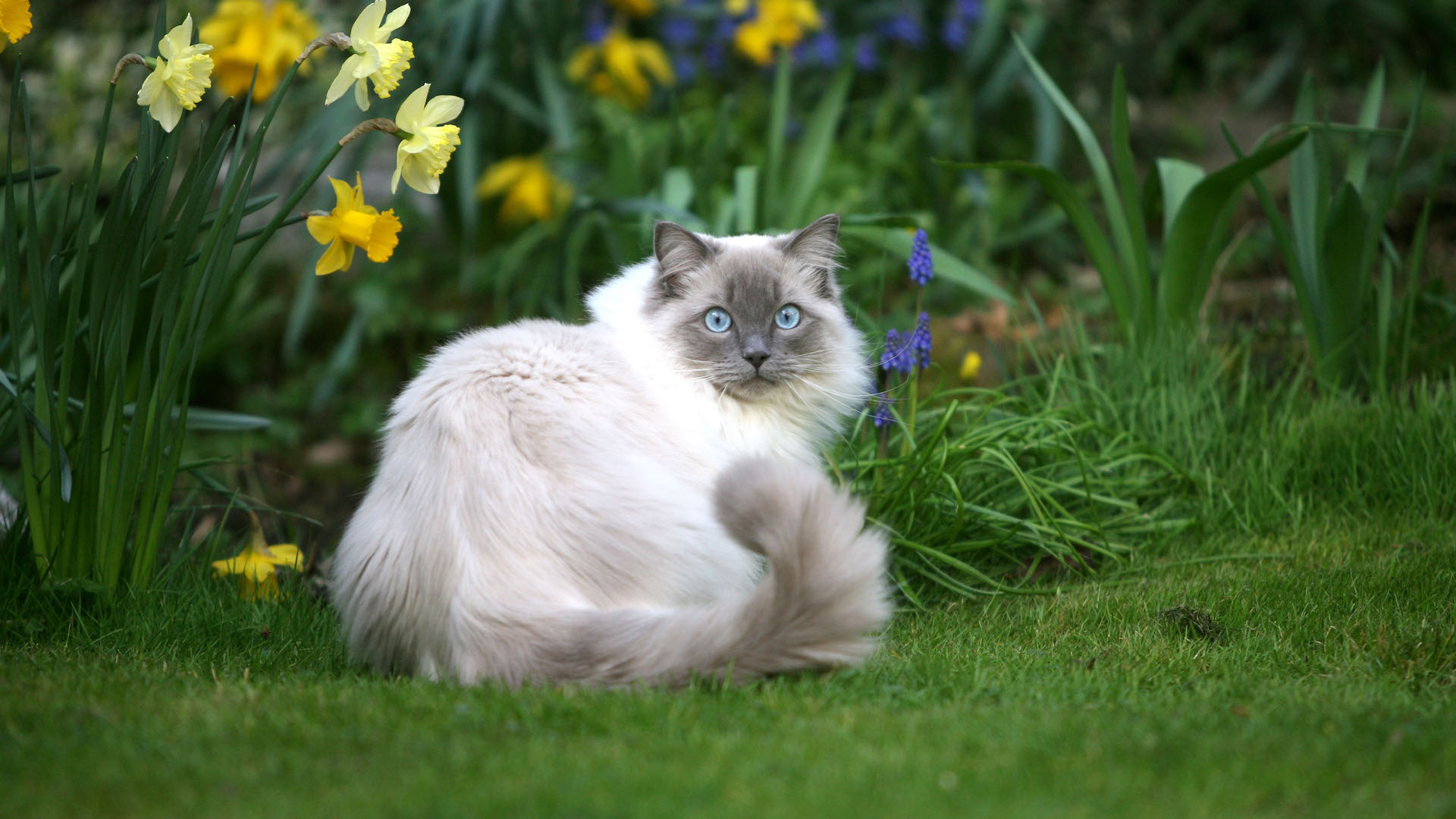
One fun fact about ragdoll cats is that they were used to breed the newer birman cat. They share many physical features such as long silky fur, pointed coats, and overall body build. However, there are several key differences such as the birman’s shorter tail and lack of undercoat.
All birmans have white feet, only certain ragdolls (mitted). Key clues: birmans are smaller; and if there’s any white on the face, it’s a ragdoll.
30. Genetic diversity concerns
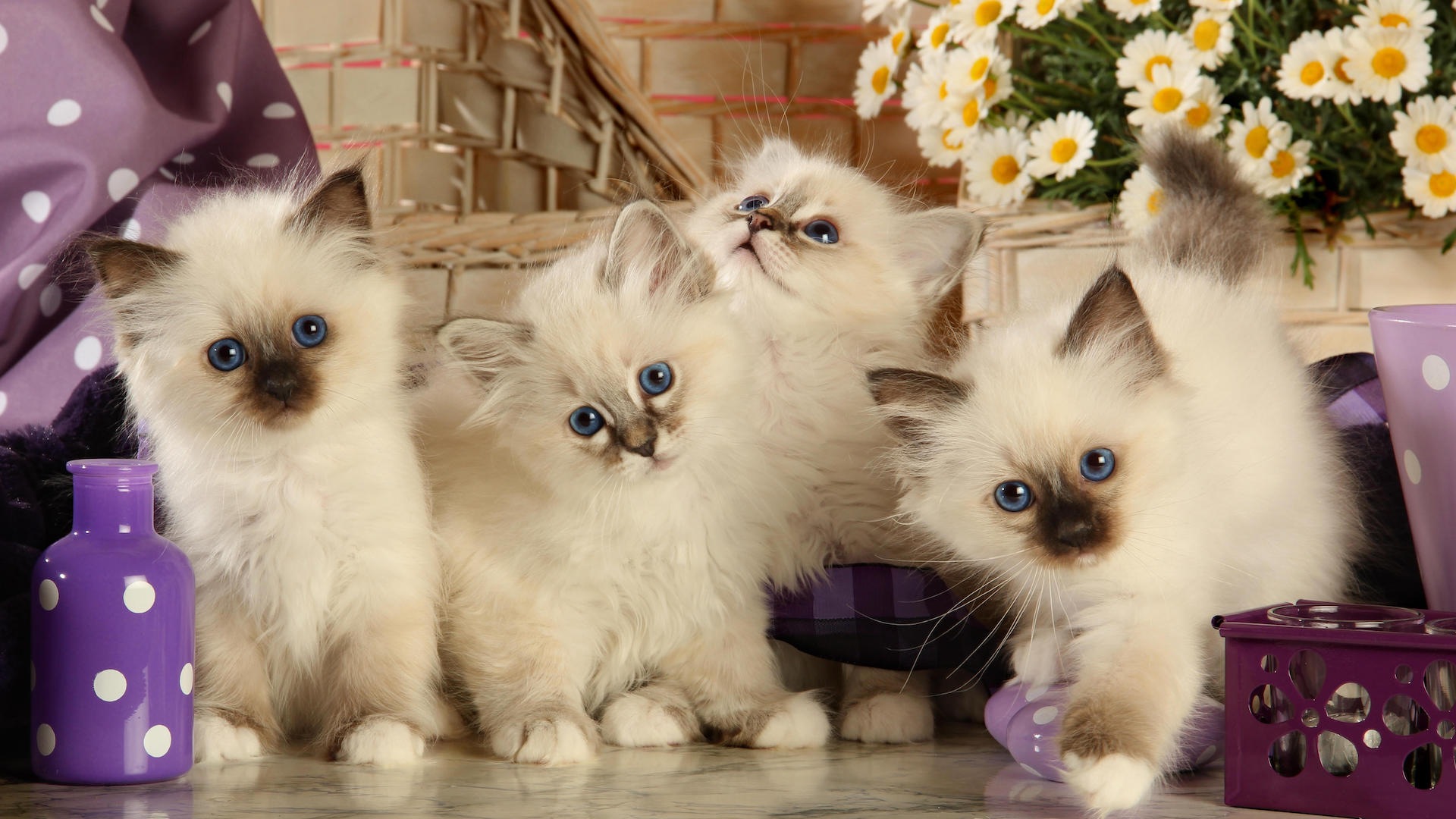
According to studies on the genetic diversity in pedigree, cat breeds by Nature Portfolio, the birman breed has one of the lowest levels of diversity. This means that there is a relatively small population of breeding cats that are not related and can put the breed at risk of hereditary health defects. However, it is stil considered one of the healthiest cat breeds.
31. Watch out for those tails!
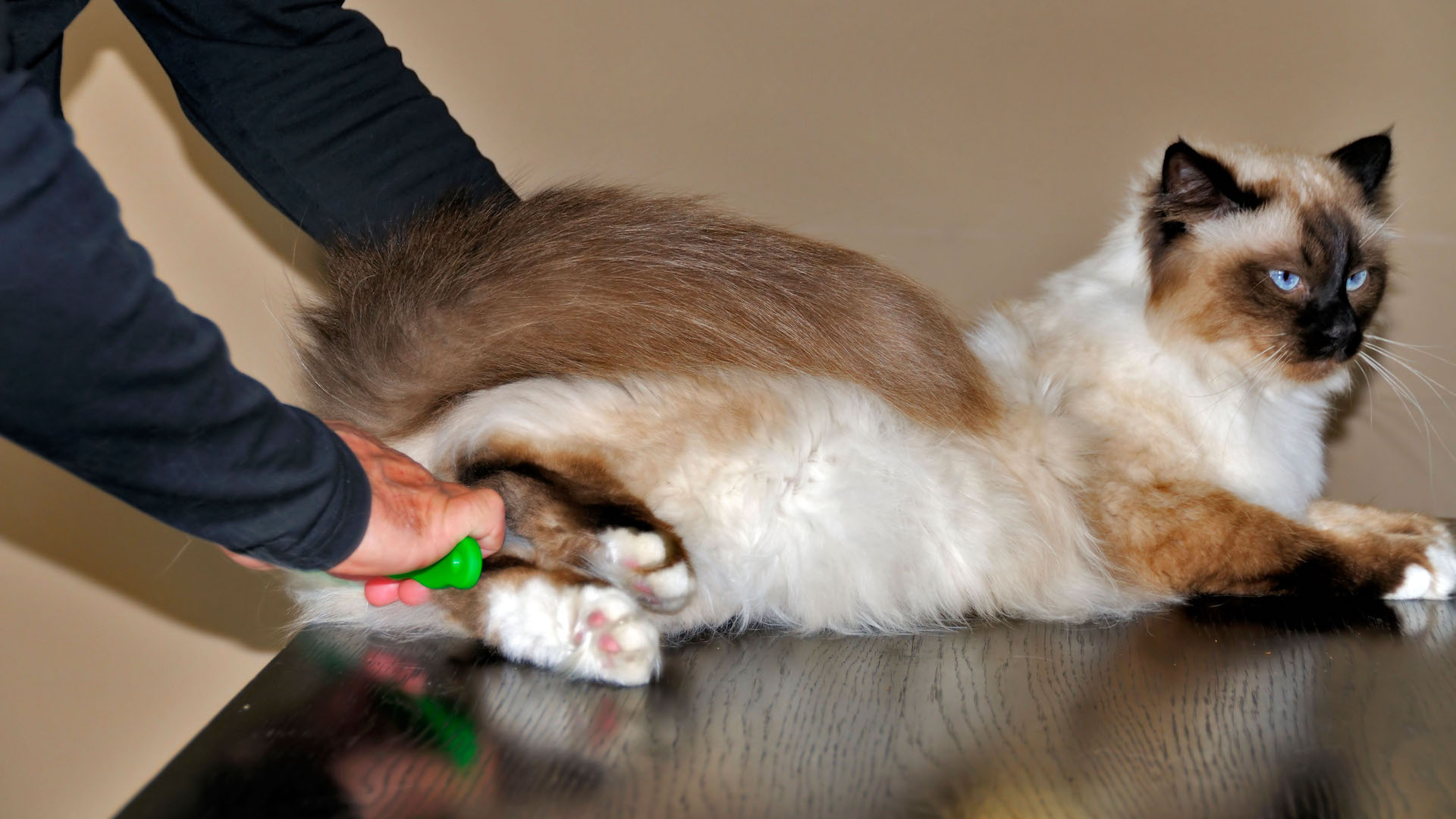
Although a birman’s tail is medium in length rather than long, it is fully plumed, and this bushy appendage is prone to knocking things over – don’t leave your mug on the coffee table.
32. What blue really means
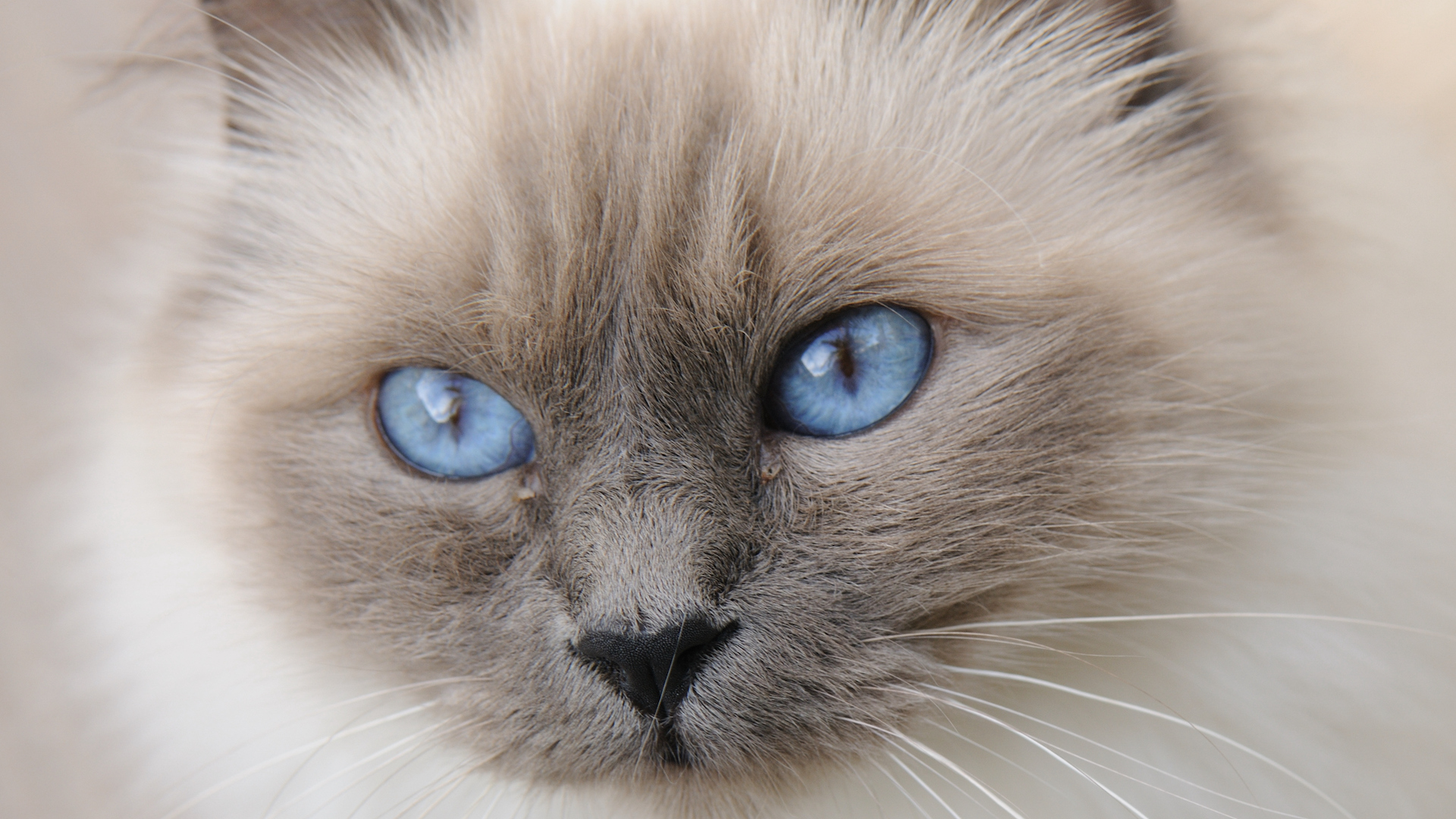
The only thing that’s really blue on a birman is their piercing sapphire eyes. A blue coat – as with most cat colorations – means grayish. And a blue birman will actually be a cream color, with gray (blue) fur on its face, tail, and legs.
As for lilac, don’t expect purple! Again, a pale ivory main coat will be highlighted with pinky-gray points.







